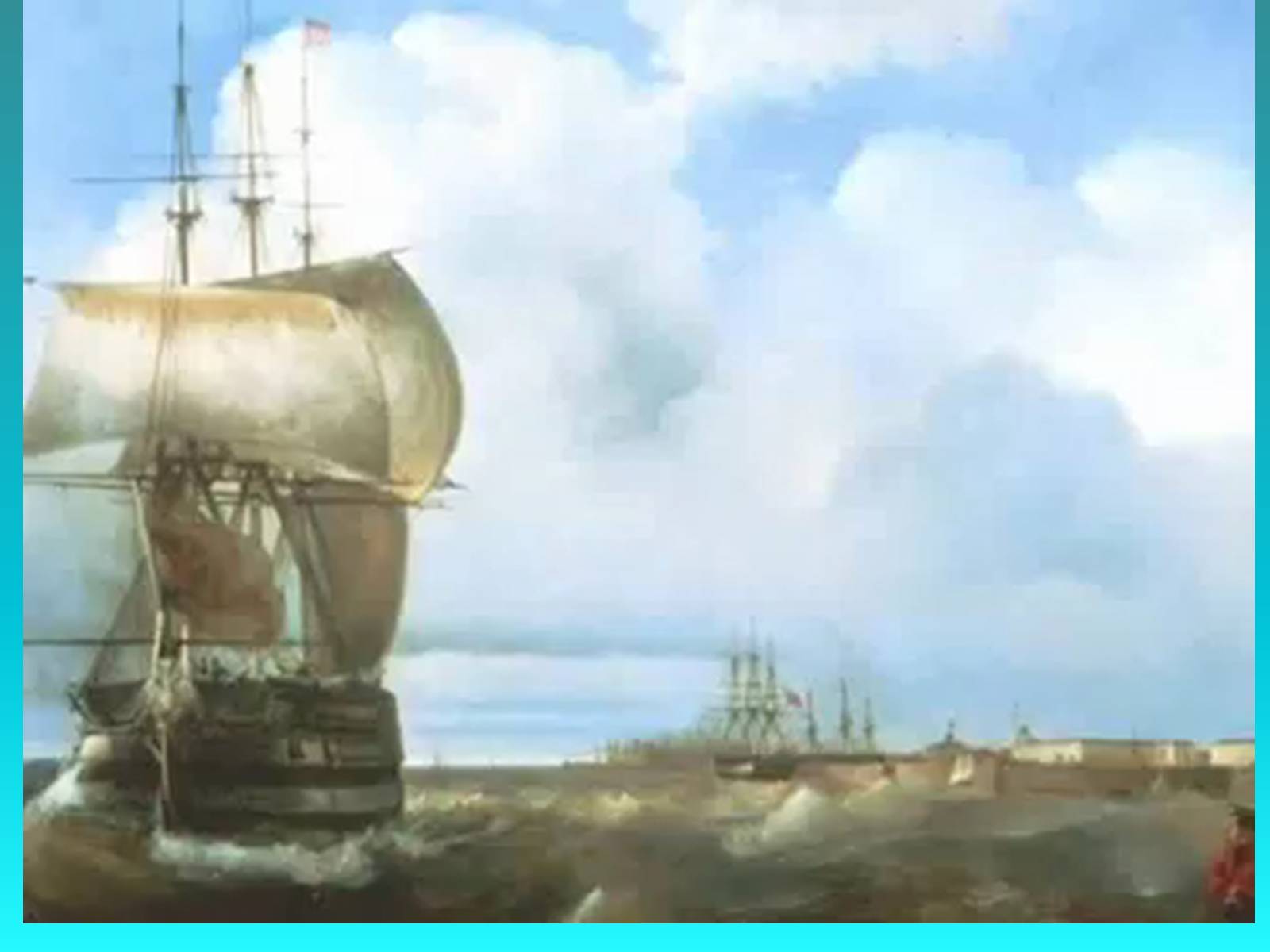Презентація на тему «IVAN AIVAZOVSKYI»
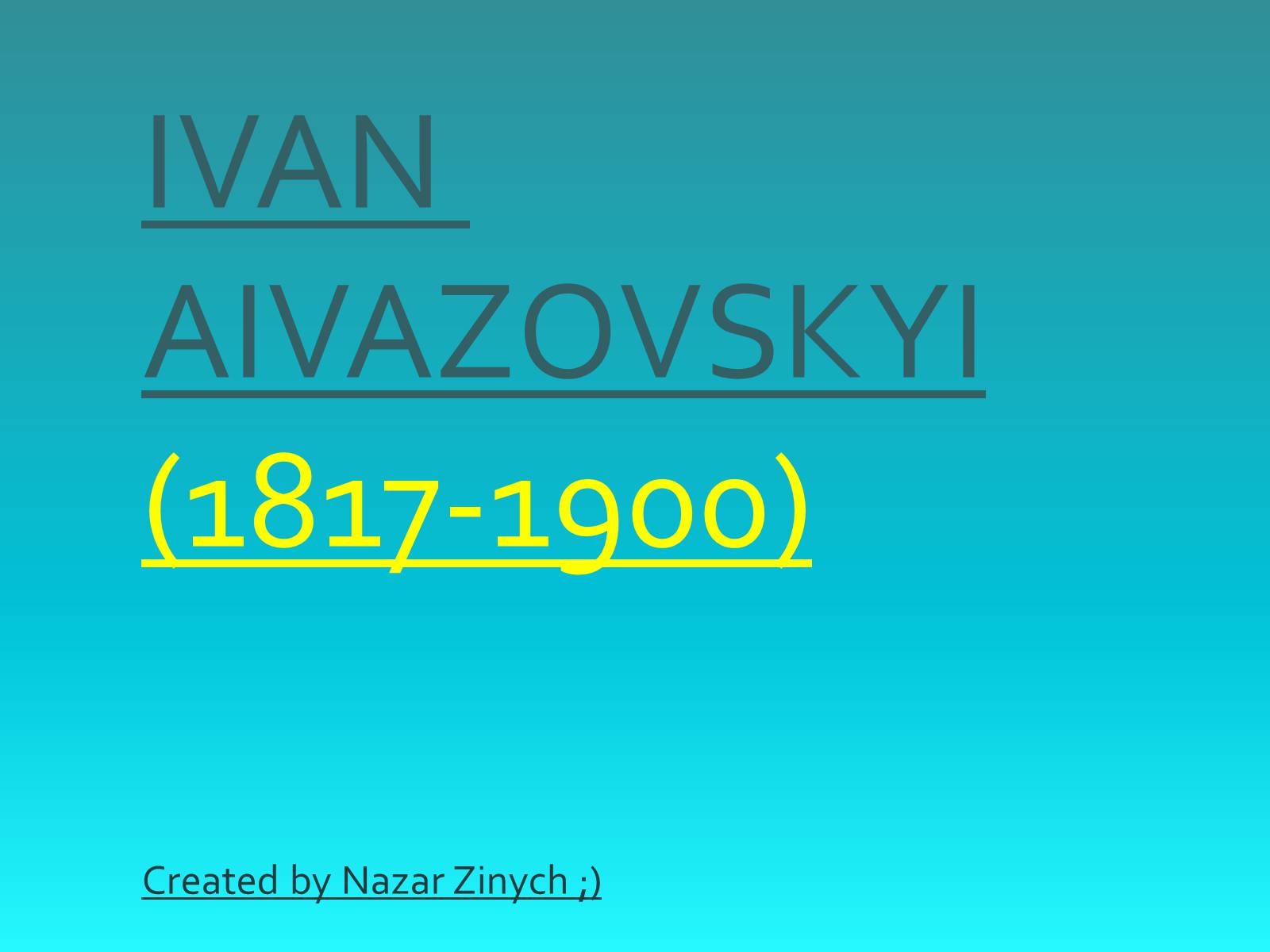
IVAN
AIVAZOVSKYI
(1817-1900)
Created by Nazar Zinych ;)
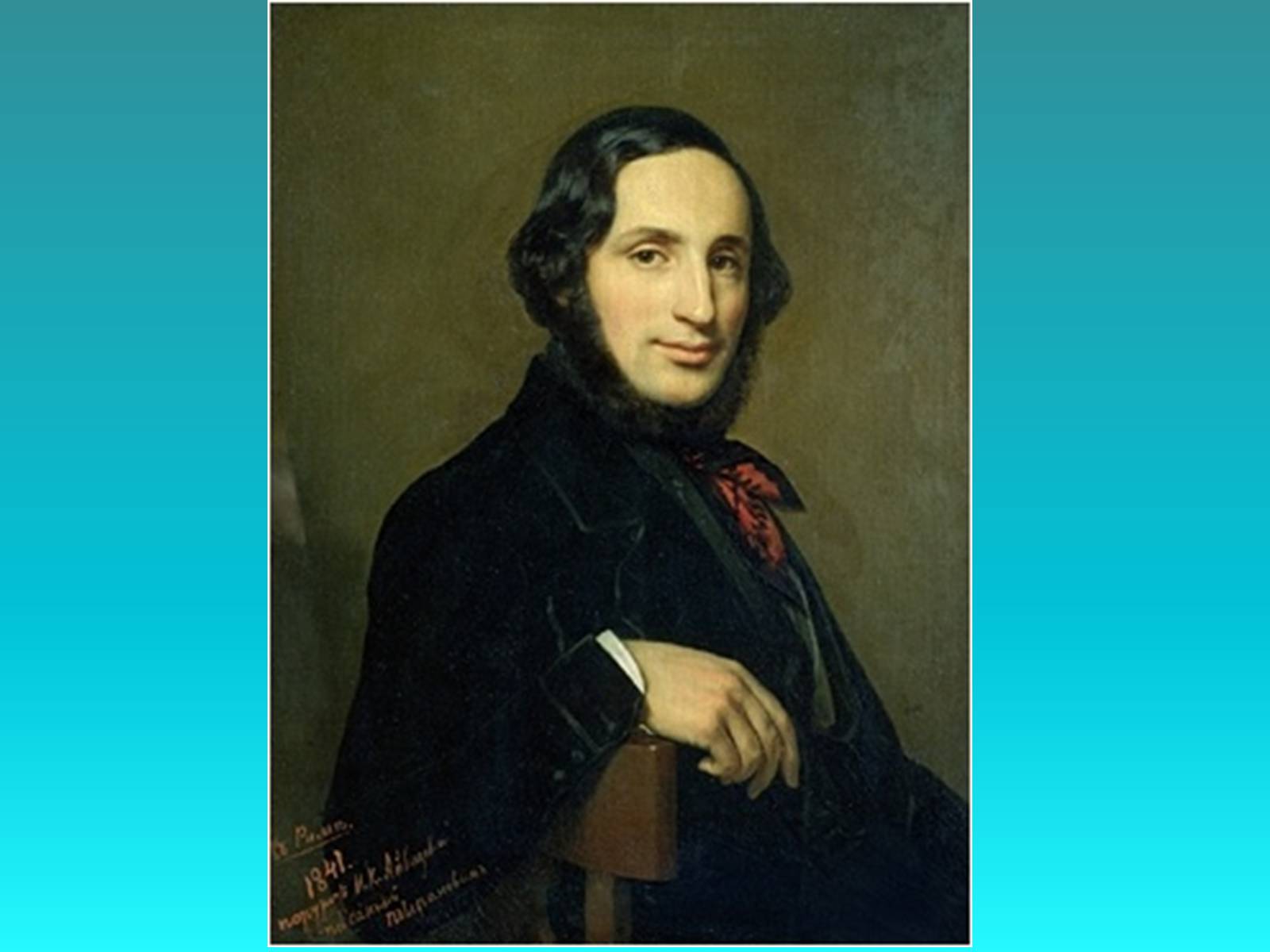
IVAN
AIVAZOVSKYI
(1817-1900)
Created by Nazar Zinych ;)
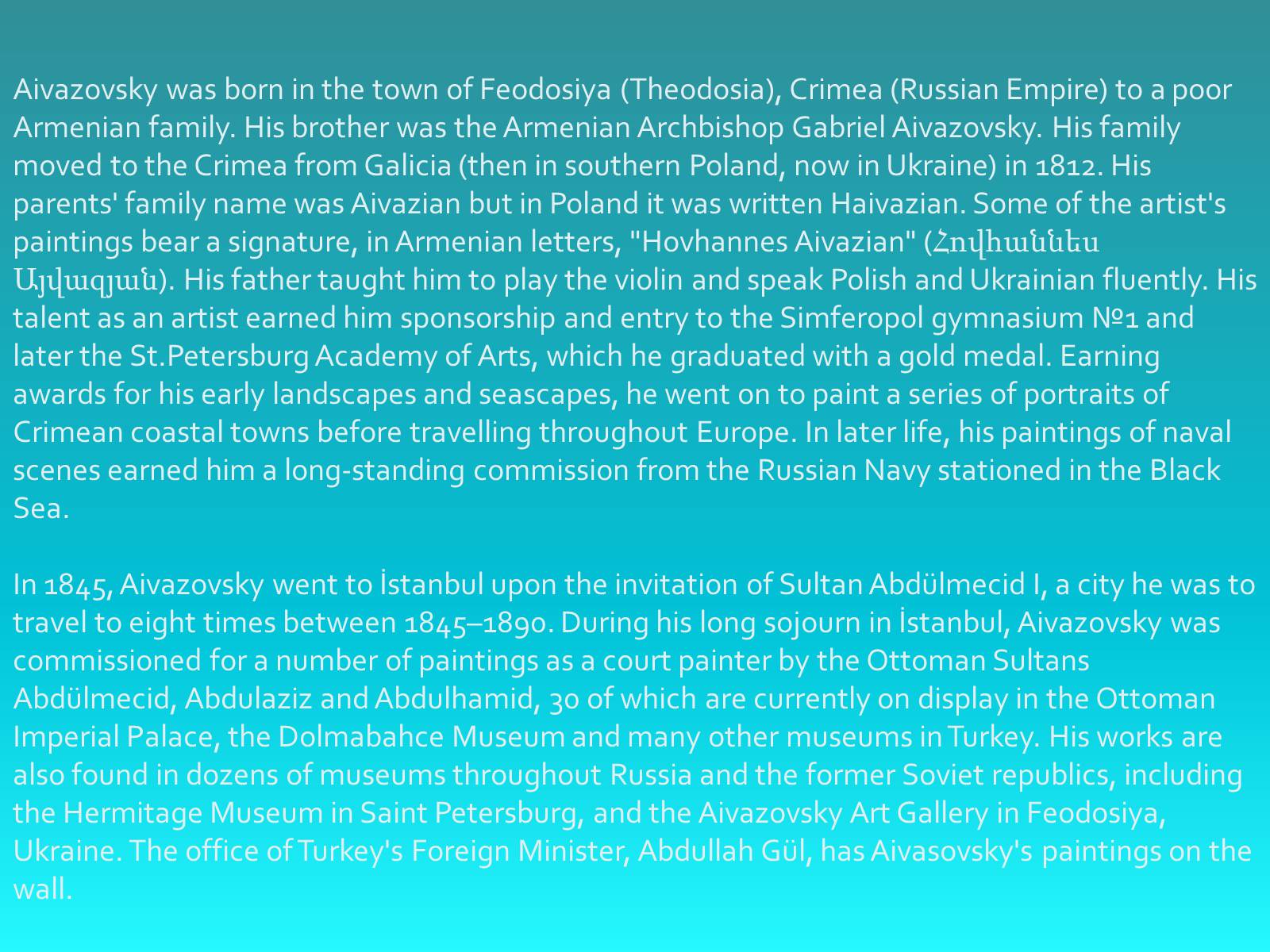
Aivazovsky was born in the town of Feodosiya (Theodosia), Crimea (Russian Empire) to a poor Armenian family. His brother was the Armenian Archbishop Gabriel Aivazovsky. His family moved to the Crimea from Galicia (then in southern Poland, now in Ukraine) in 1812. His parents' family name was Aivazian but in Poland it was written Haivazian. Some of the artist's paintings bear a signature, in Armenian letters, "Hovhannes Aivazian" (Հովհաննես Այվազյան). His father taught him to play the violin and speak Polish and Ukrainian fluently. His talent as an artist earned him sponsorship and entry to the Simferopol gymnasium №1 and later the St.Petersburg Academy of Arts, which he graduated with a gold medal. Earning awards for his early landscapes and seascapes, he went on to paint a series of portraits of Crimean coastal towns before travelling throughout Europe. In later life, his paintings of naval scenes earned him a long-standing commission from the Russian Navy stationed in the Black Sea.
In 1845, Aivazovsky went to İstanbul upon the invitation of Sultan Abdülmecid I, a city he was to travel to eight times between 1845–1890. During his long sojourn in İstanbul, Aivazovsky was commissioned for a number of paintings as a court painter by the Ottoman Sultans Abdülmecid, Abdulaziz and Abdulhamid, 30 of which are currently on display in the Ottoman Imperial Palace, the Dolmabahce Museum and many other museums in Turkey. His works are also found in dozens of museums throughout Russia and the former Soviet republics, including the Hermitage Museum in Saint Petersburg, and the Aivazovsky Art Gallery in Feodosiya, Ukraine. The office of Turkey's Foreign Minister, Abdullah Gül, has Aivasovsky's paintings on the wall.
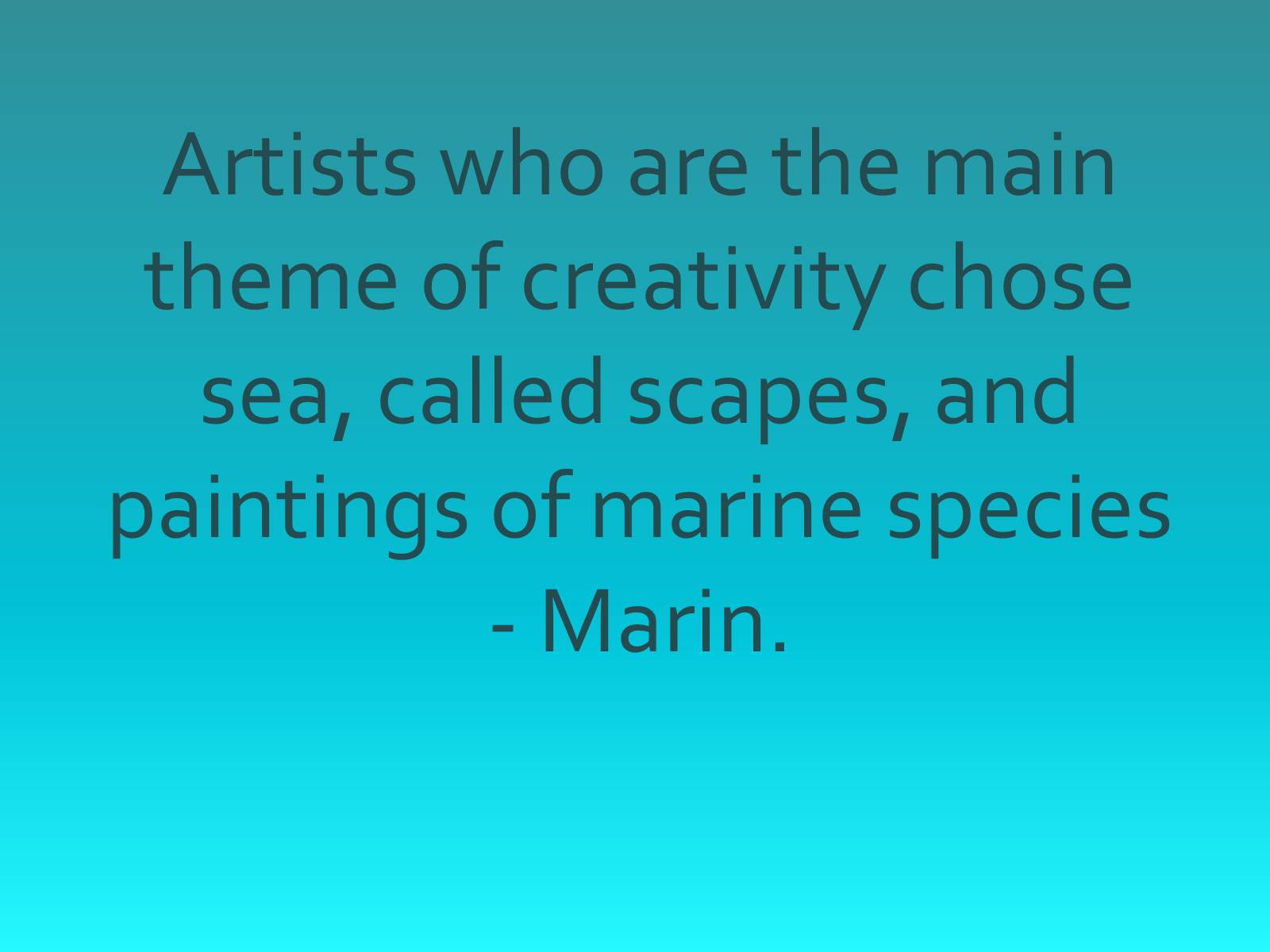
Artists who are the main theme of creativity chose sea, called scapes, and paintings of marine species - Marin.
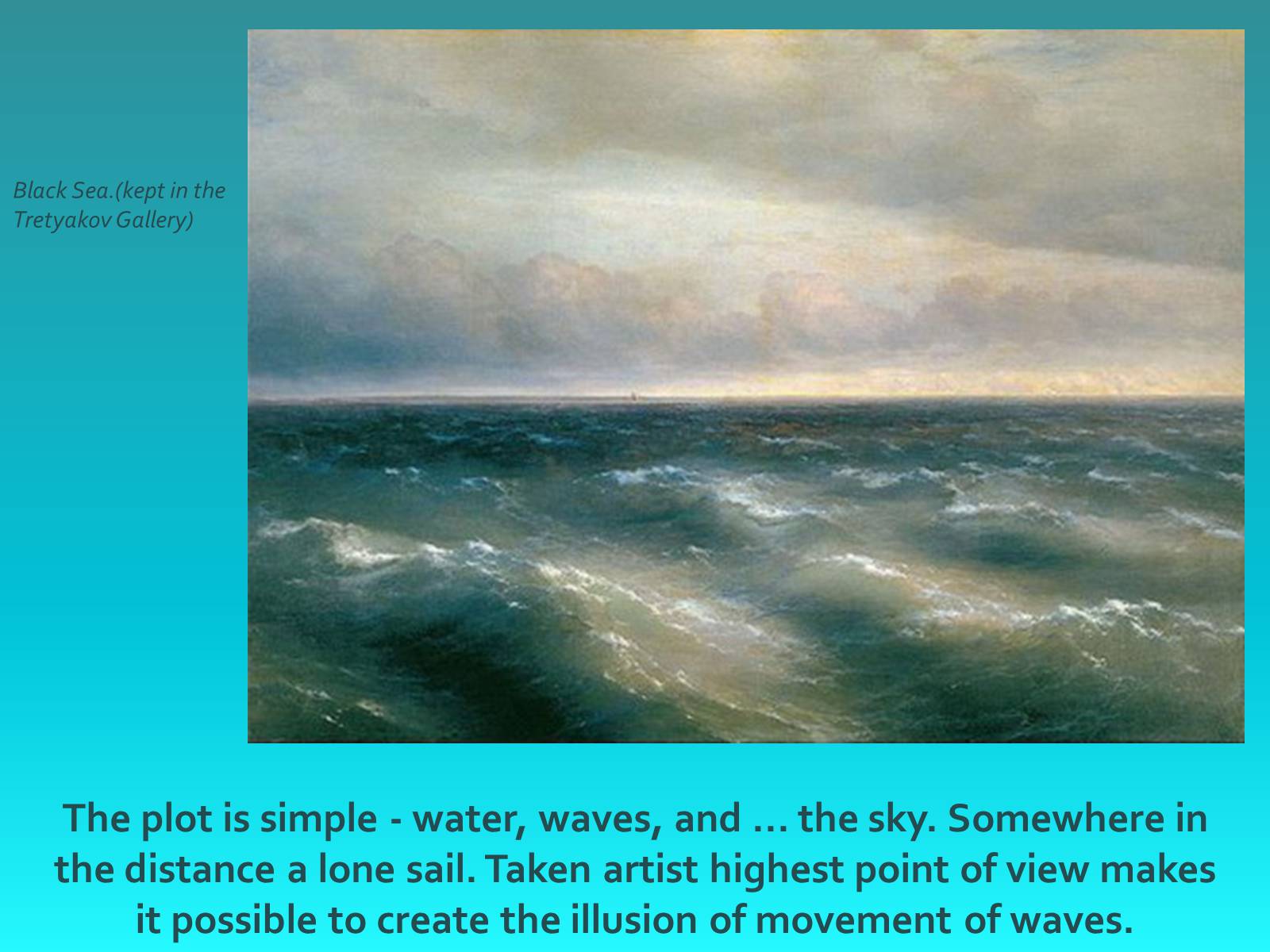
Black Sea.(kept in the Tretyakov Gallery)
The plot is simple - water, waves, and ... the sky. Somewhere in the distance a lone sail. Taken artist highest point of view makes it possible to create the illusion of movement of waves.
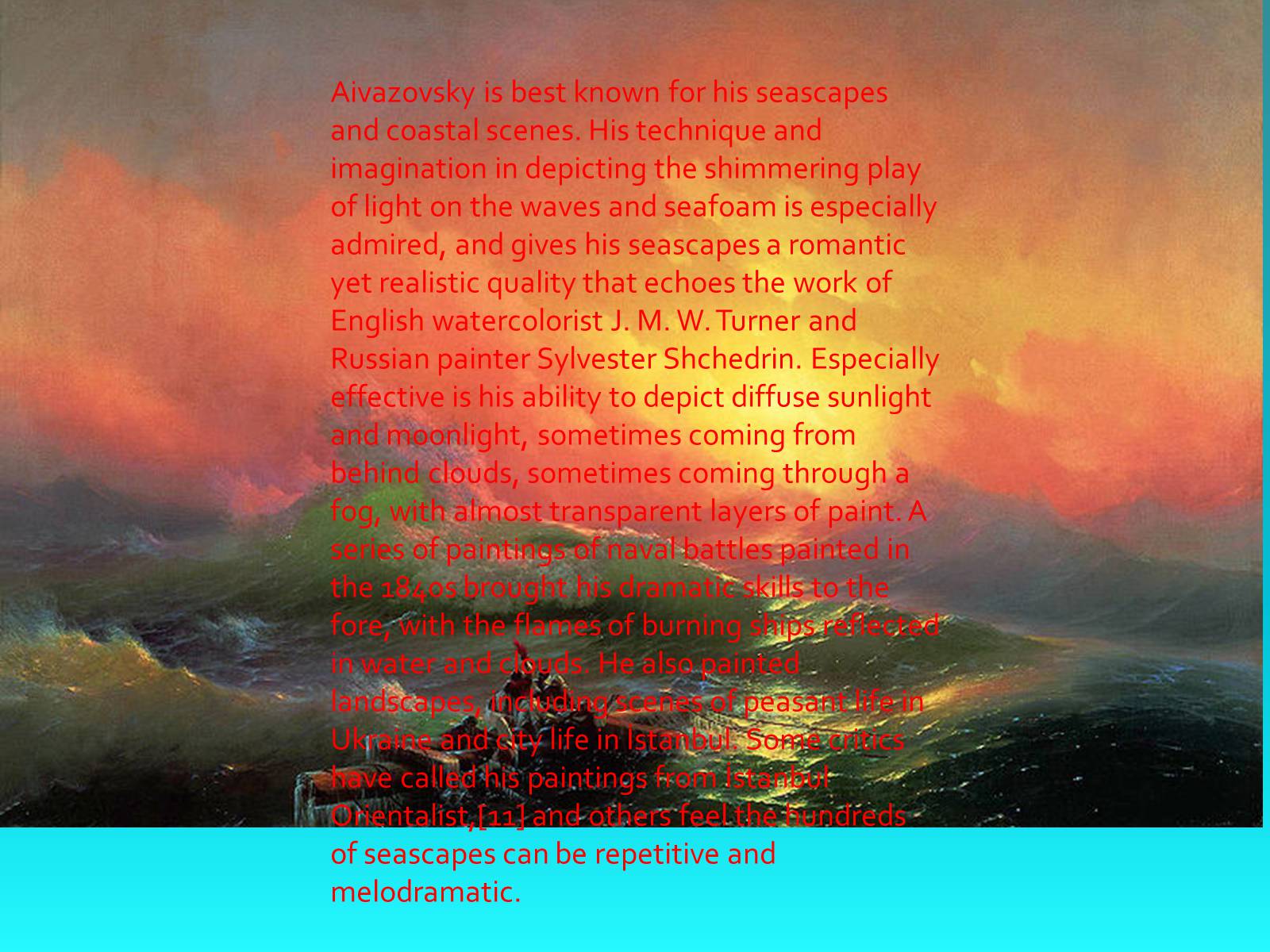
Aivazovsky is best known for his seascapes and coastal scenes. His technique and imagination in depicting the shimmering play of light on the waves and seafoam is especially admired, and gives his seascapes a romantic yet realistic quality that echoes the work of English watercolorist J. M. W. Turner and Russian painter Sylvester Shchedrin. Especially effective is his ability to depict diffuse sunlight and moonlight, sometimes coming from behind clouds, sometimes coming through a fog, with almost transparent layers of paint. A series of paintings of naval battles painted in the 1840s brought his dramatic skills to the fore, with the flames of burning ships reflected in water and clouds. He also painted landscapes, including scenes of peasant life in Ukraine and city life in İstanbul. Some critics have called his paintings from İstanbul Orientalist,[11] and others feel the hundreds of seascapes can be repetitive and melodramatic.
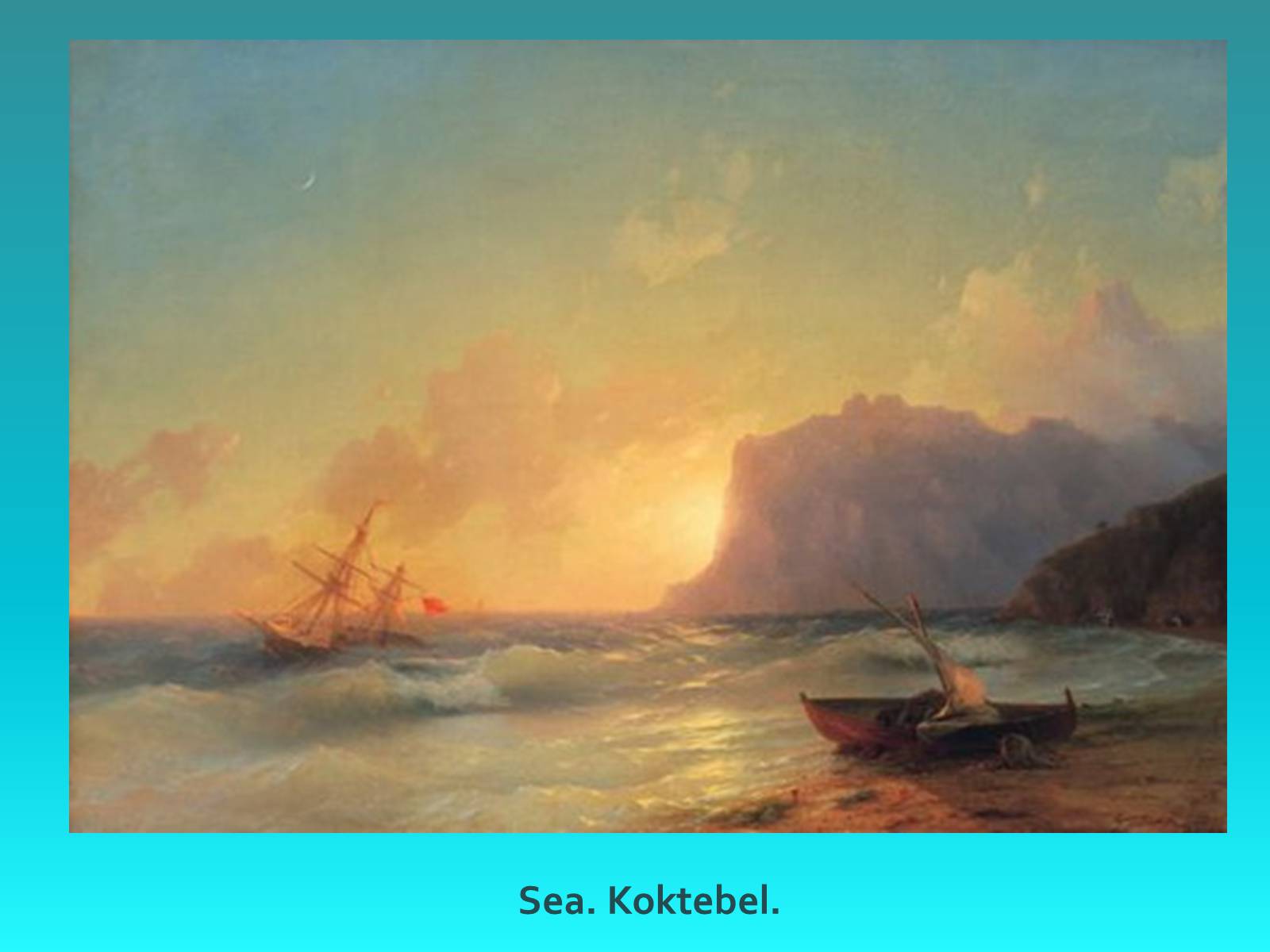
Sea. Koktebel.
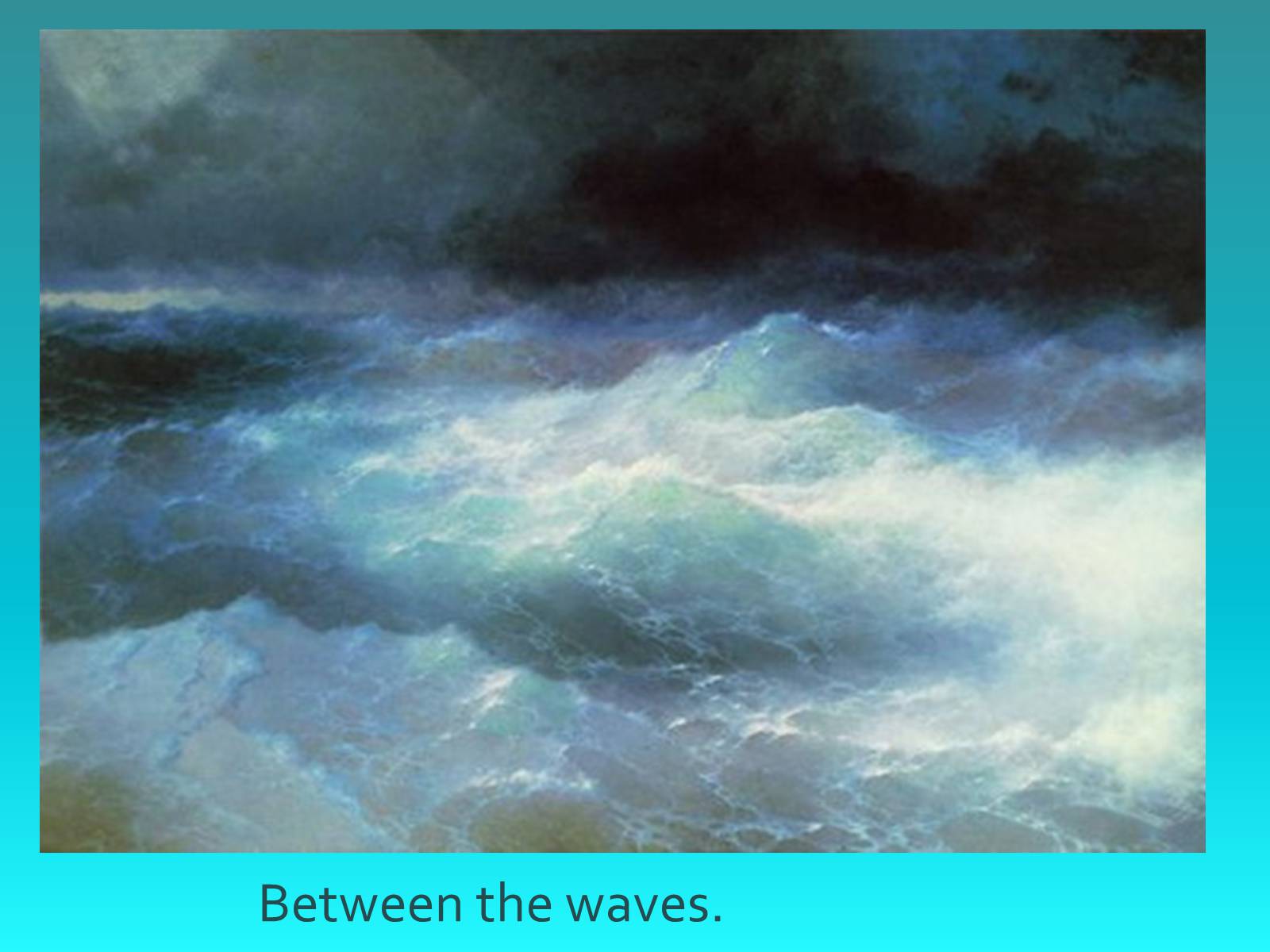
Between the waves.
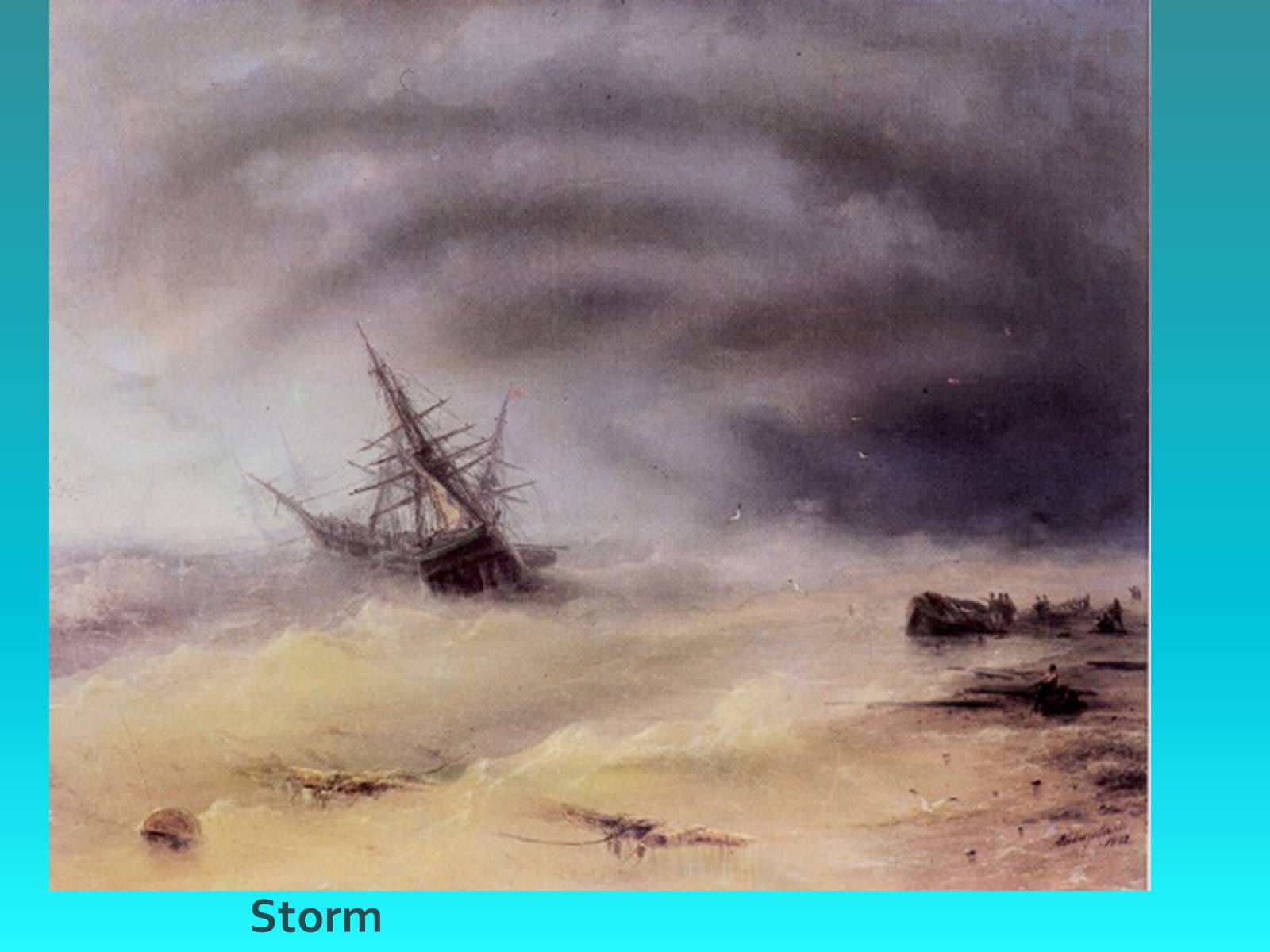
Storm
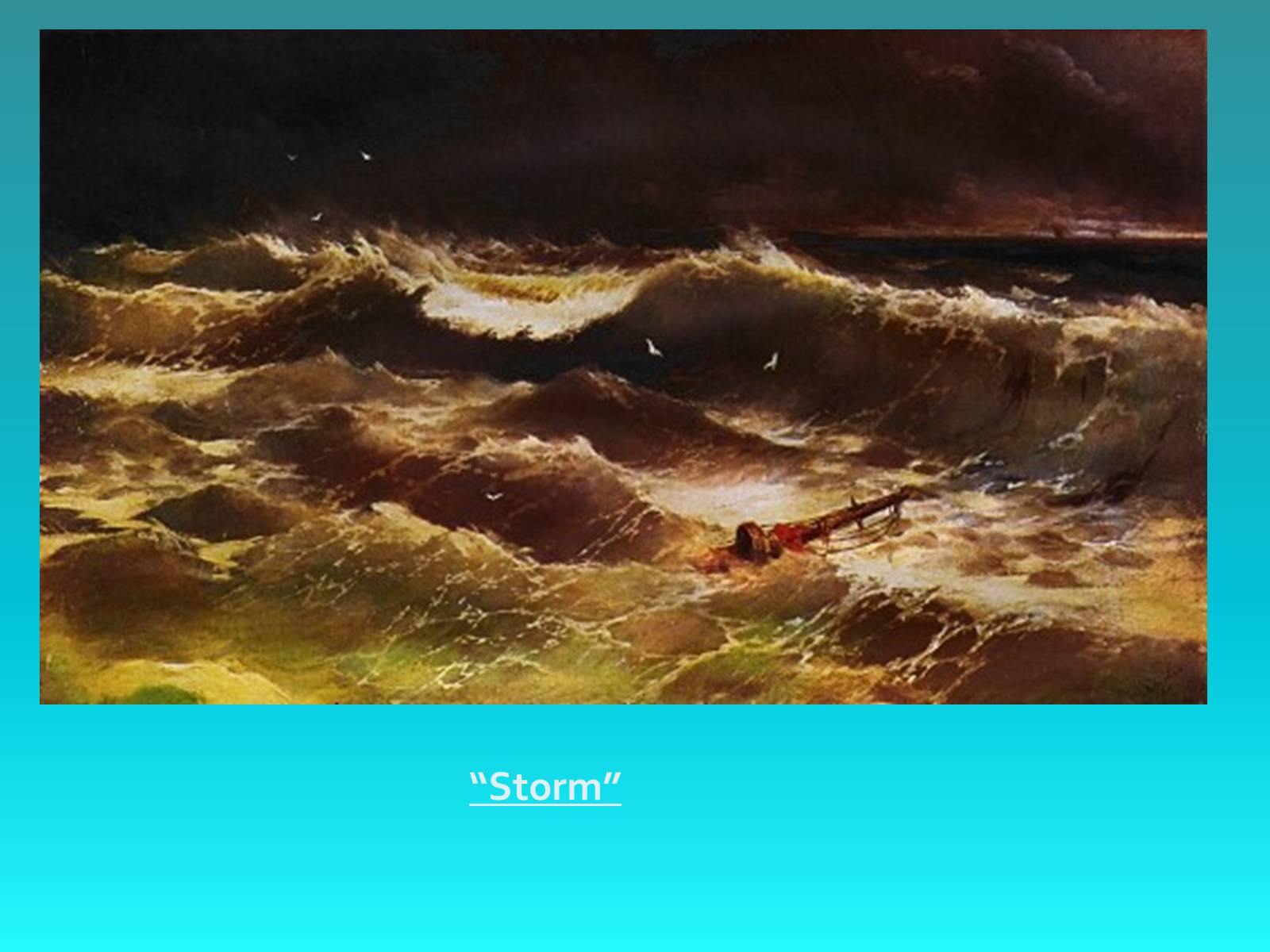
“Storm”
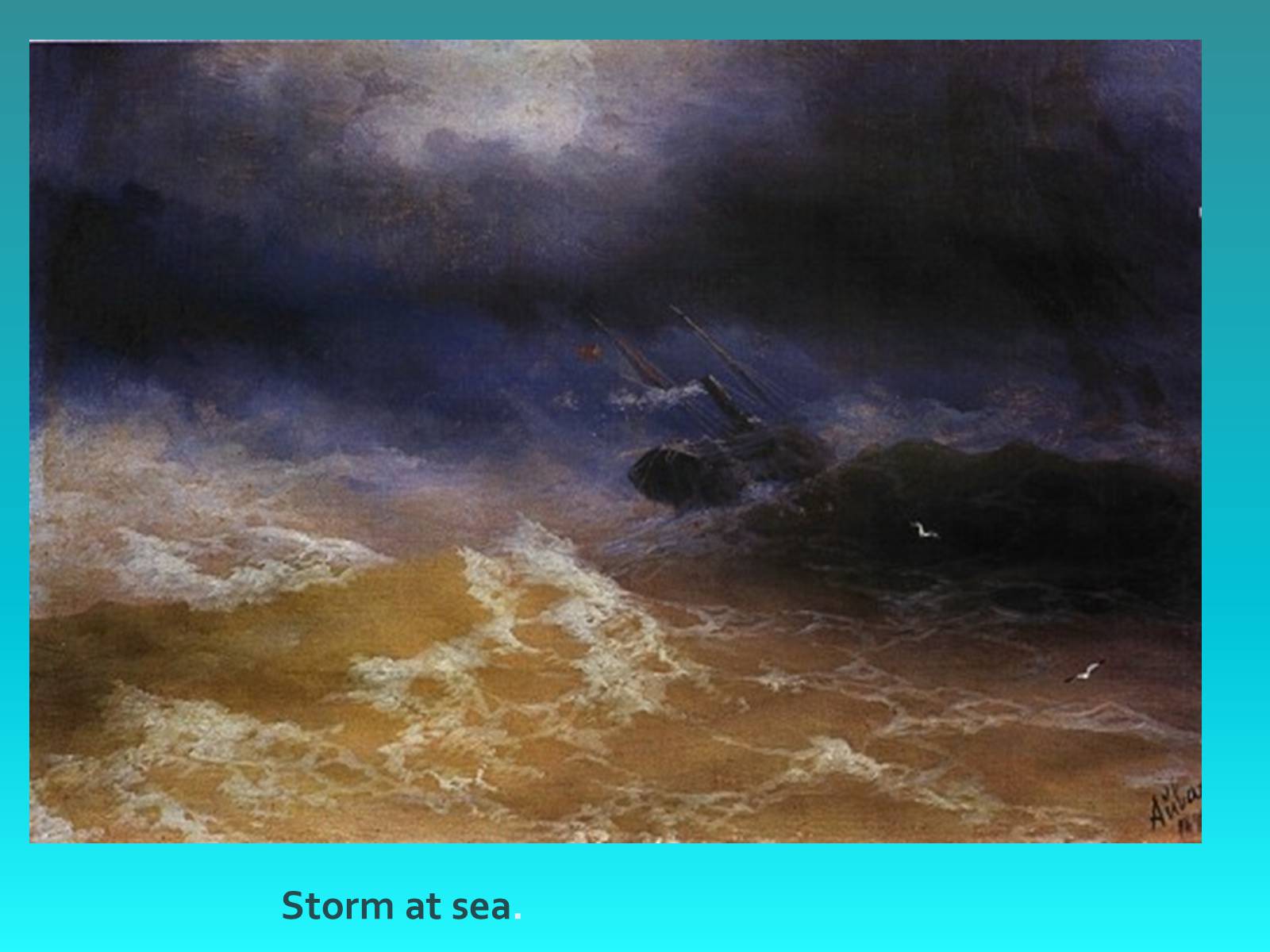
Storm at sea.
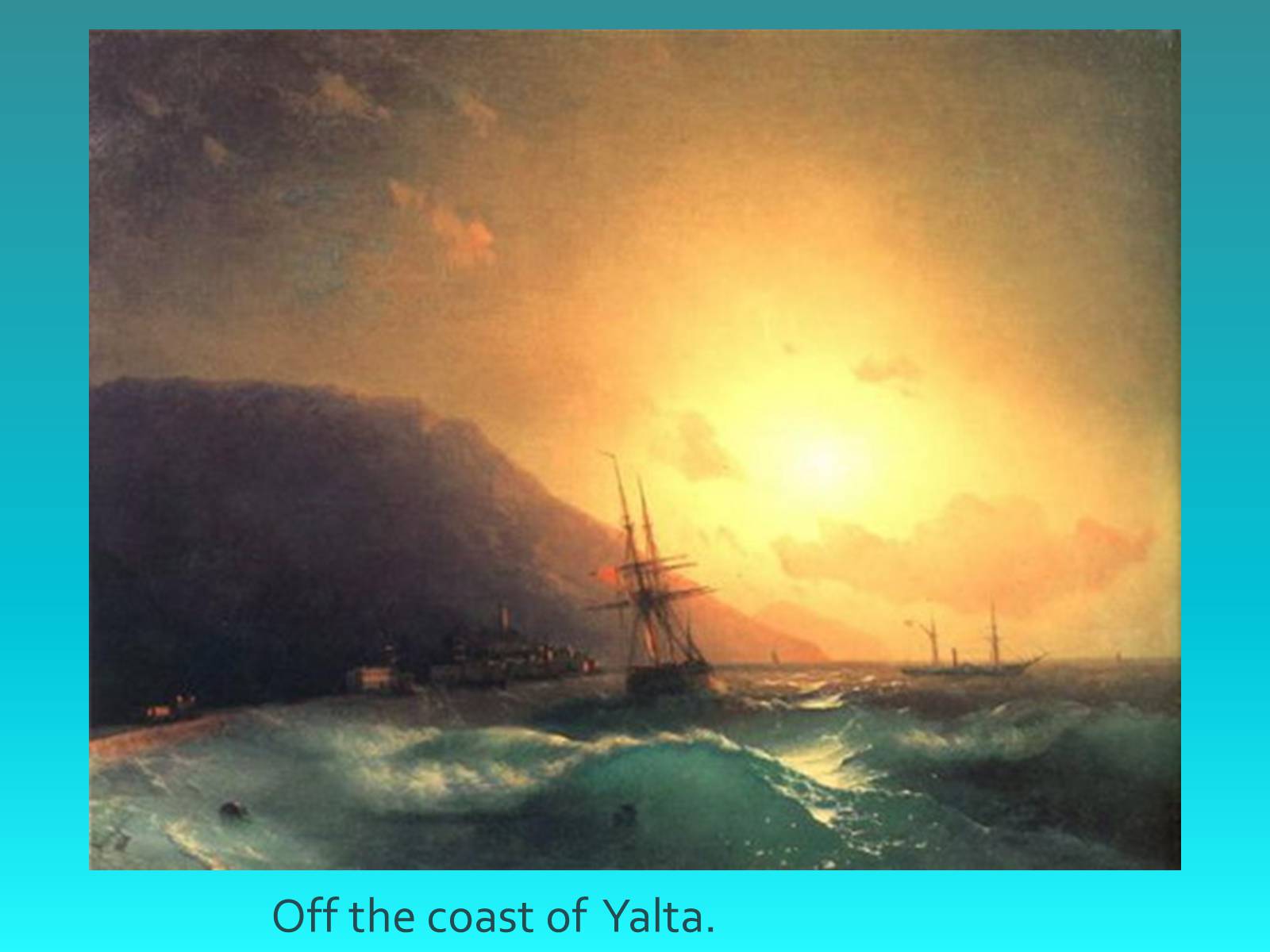
Off the coast of Yalta.
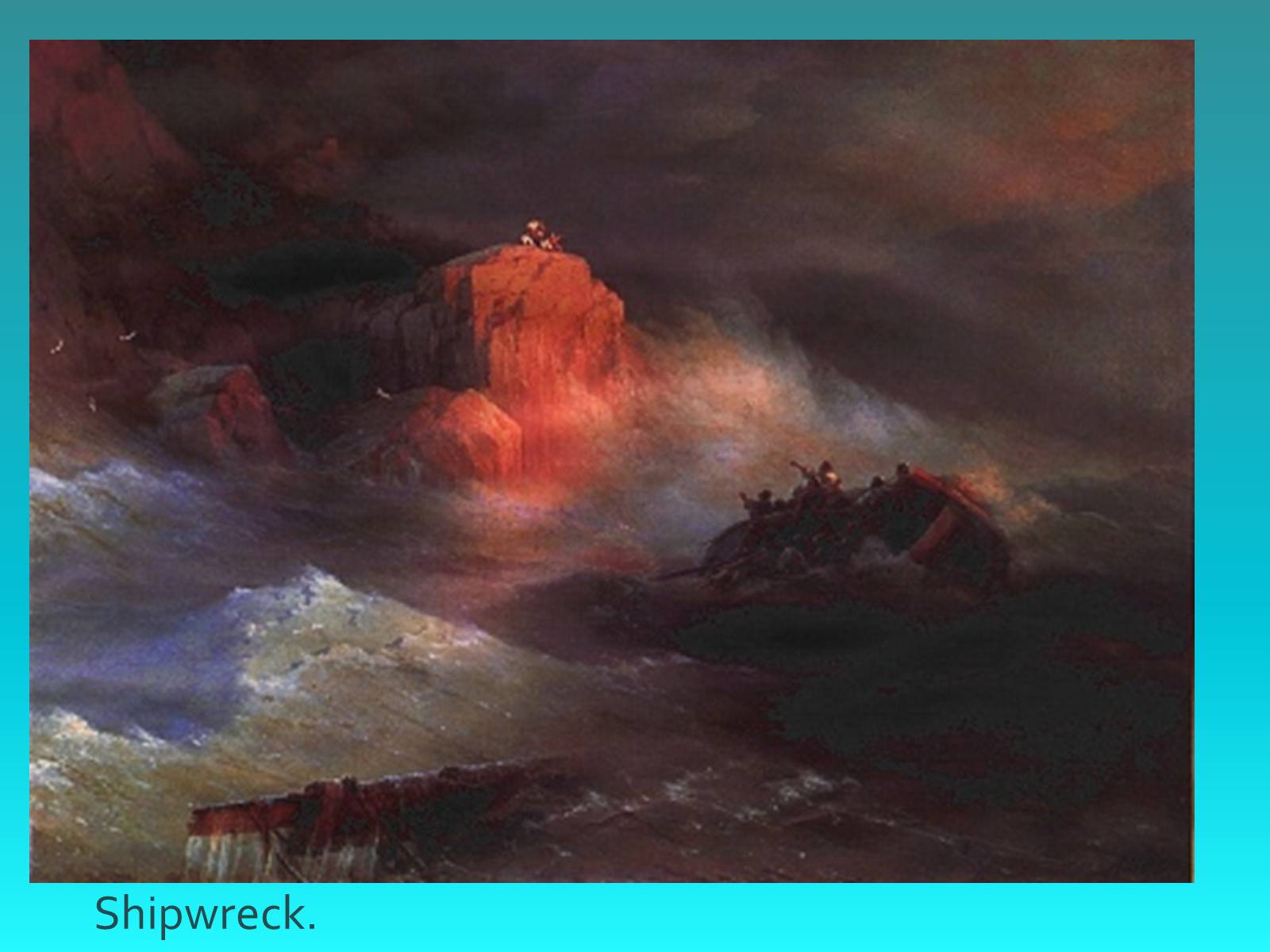
Shipwreck.
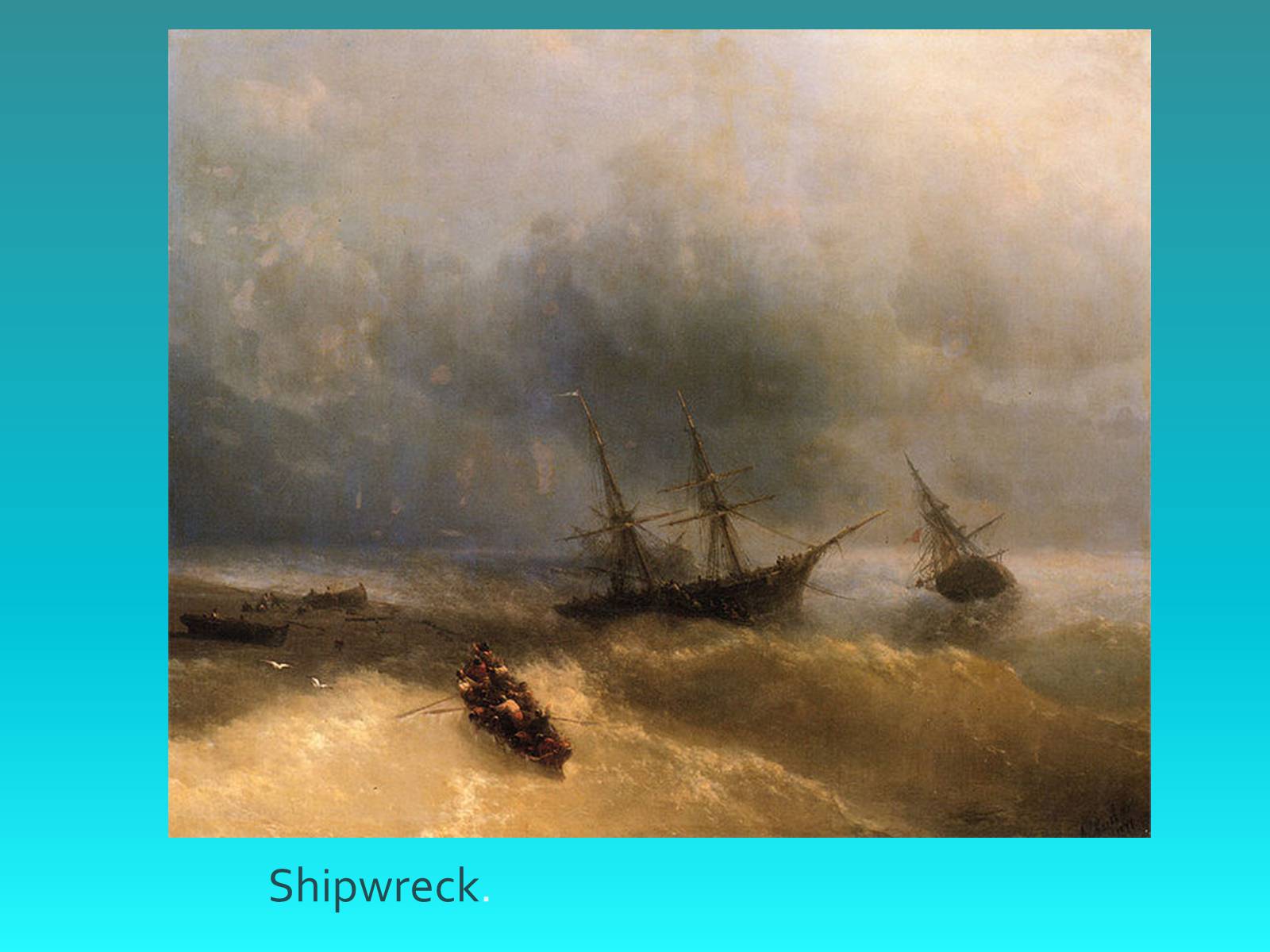
Shipwreck.
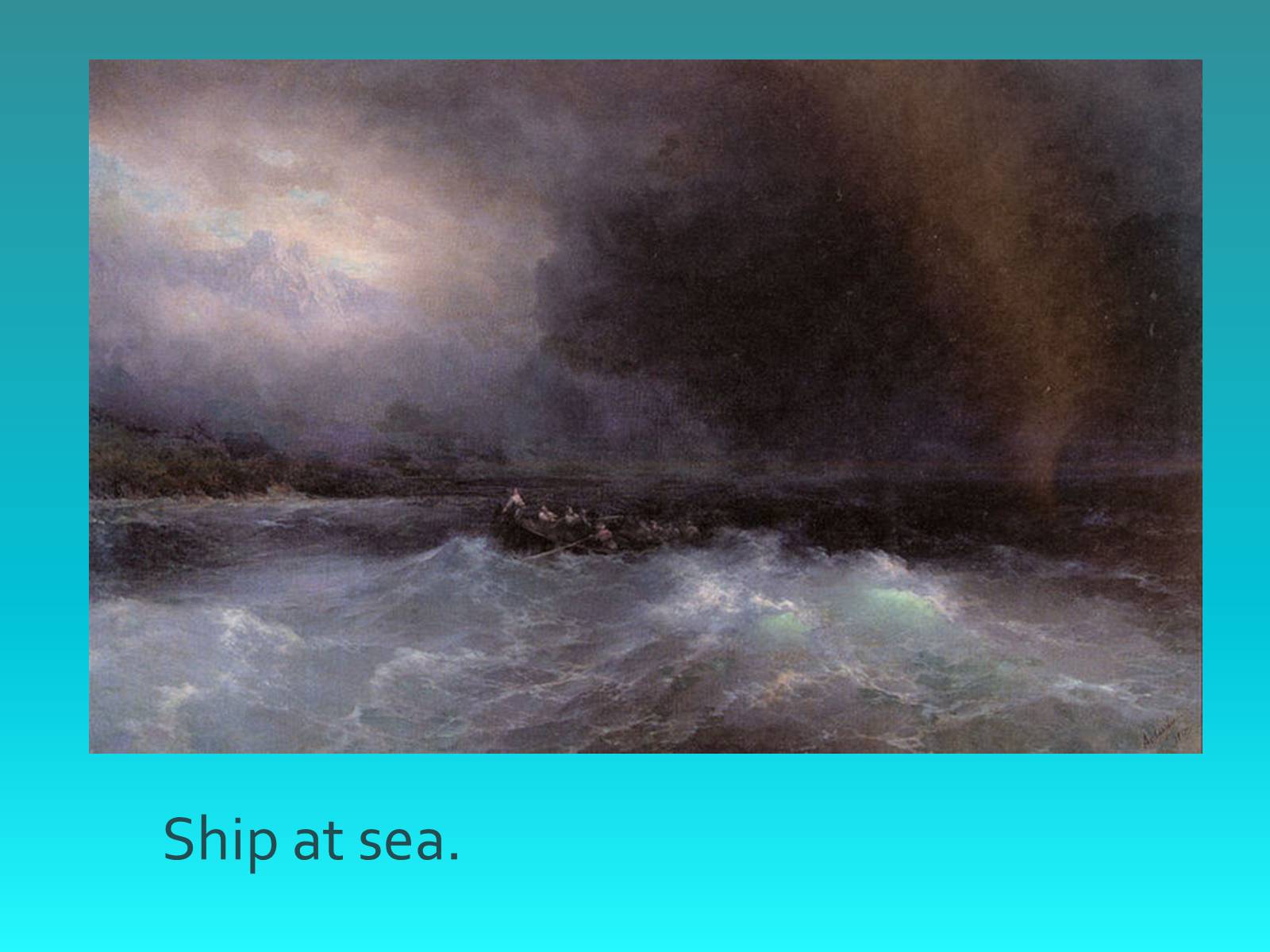
Ship at sea.
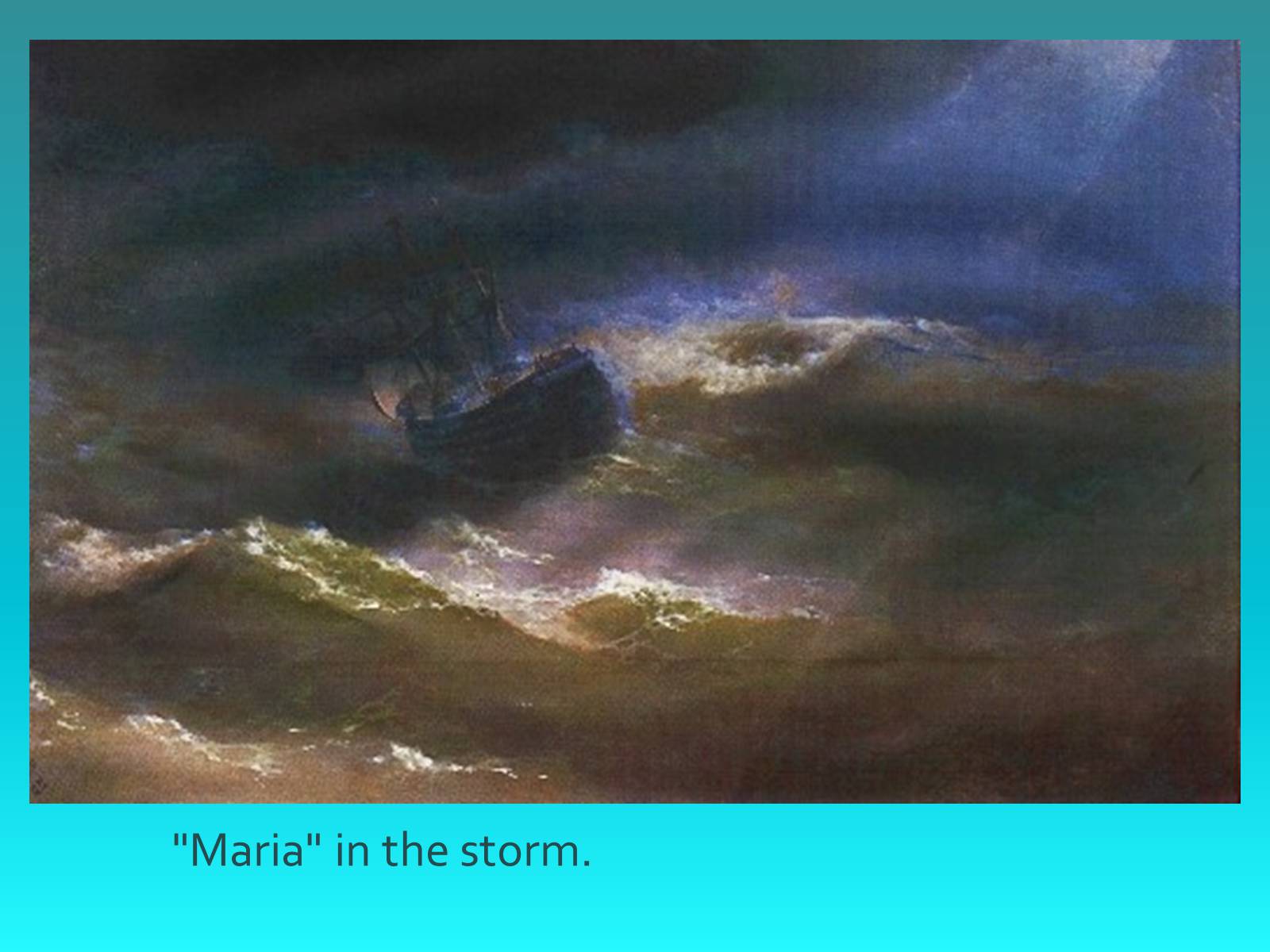
"Maria" in the storm.
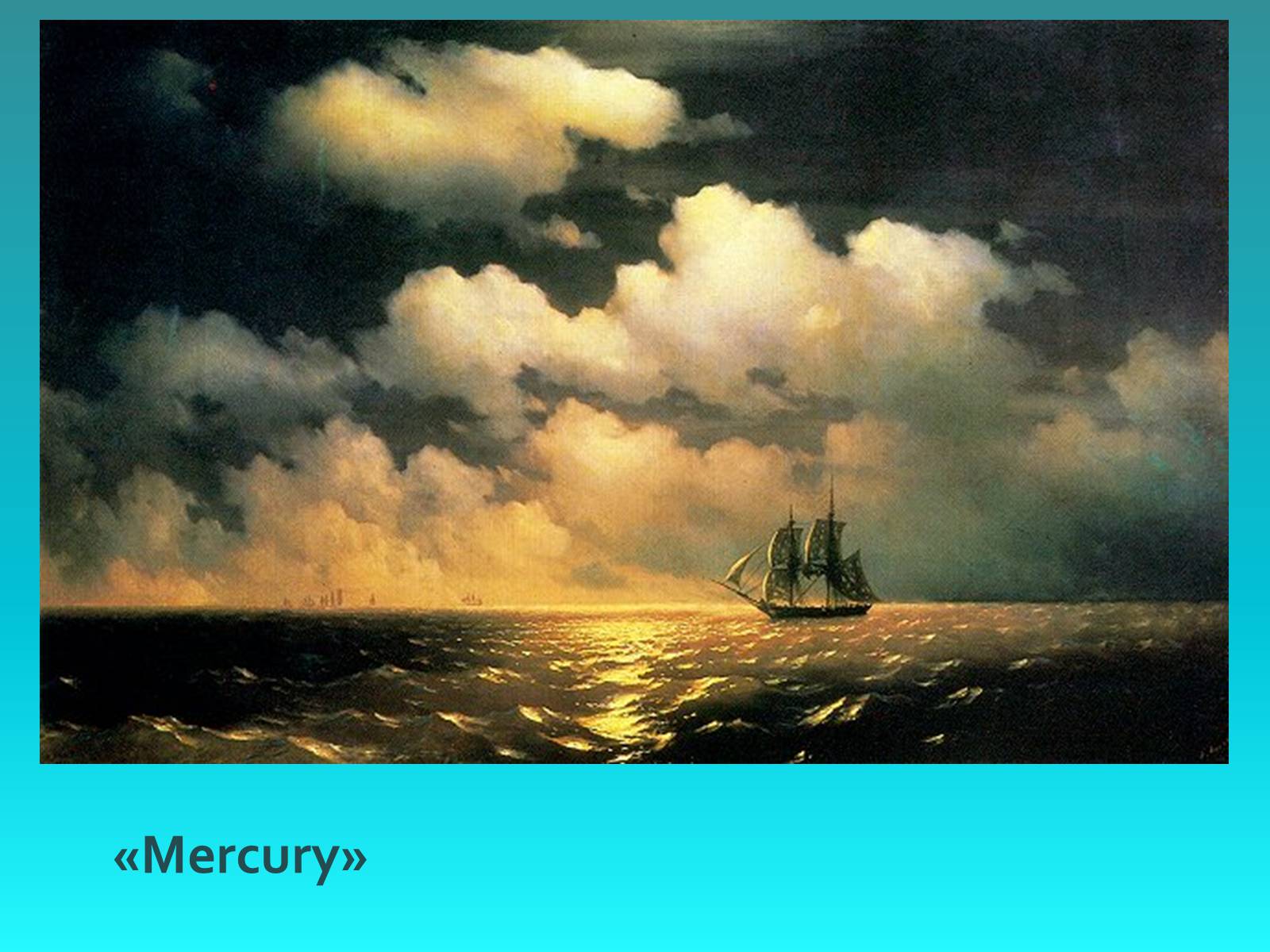
«Mercury»
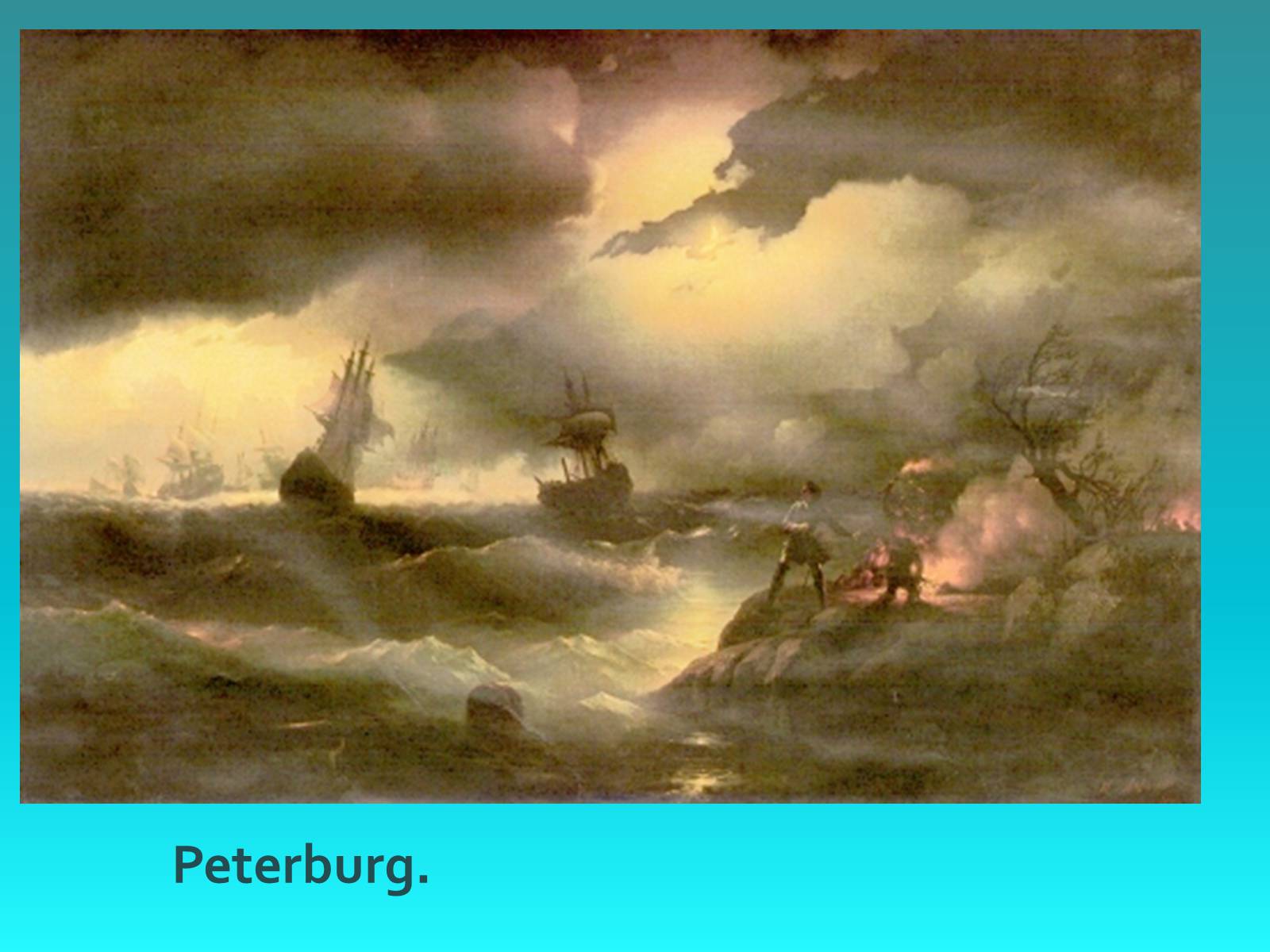
Peterburg.
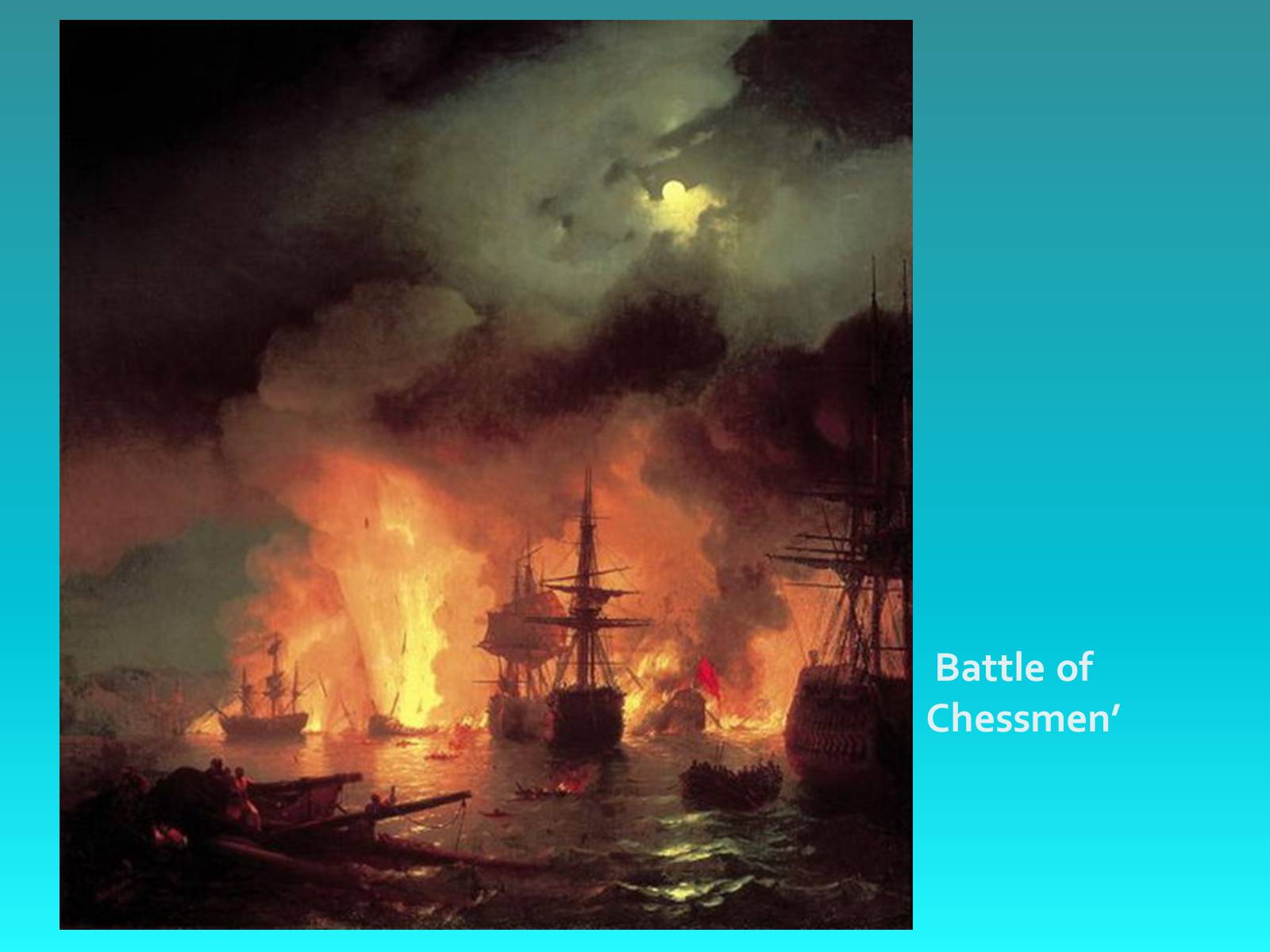
Battle of Chessmen'
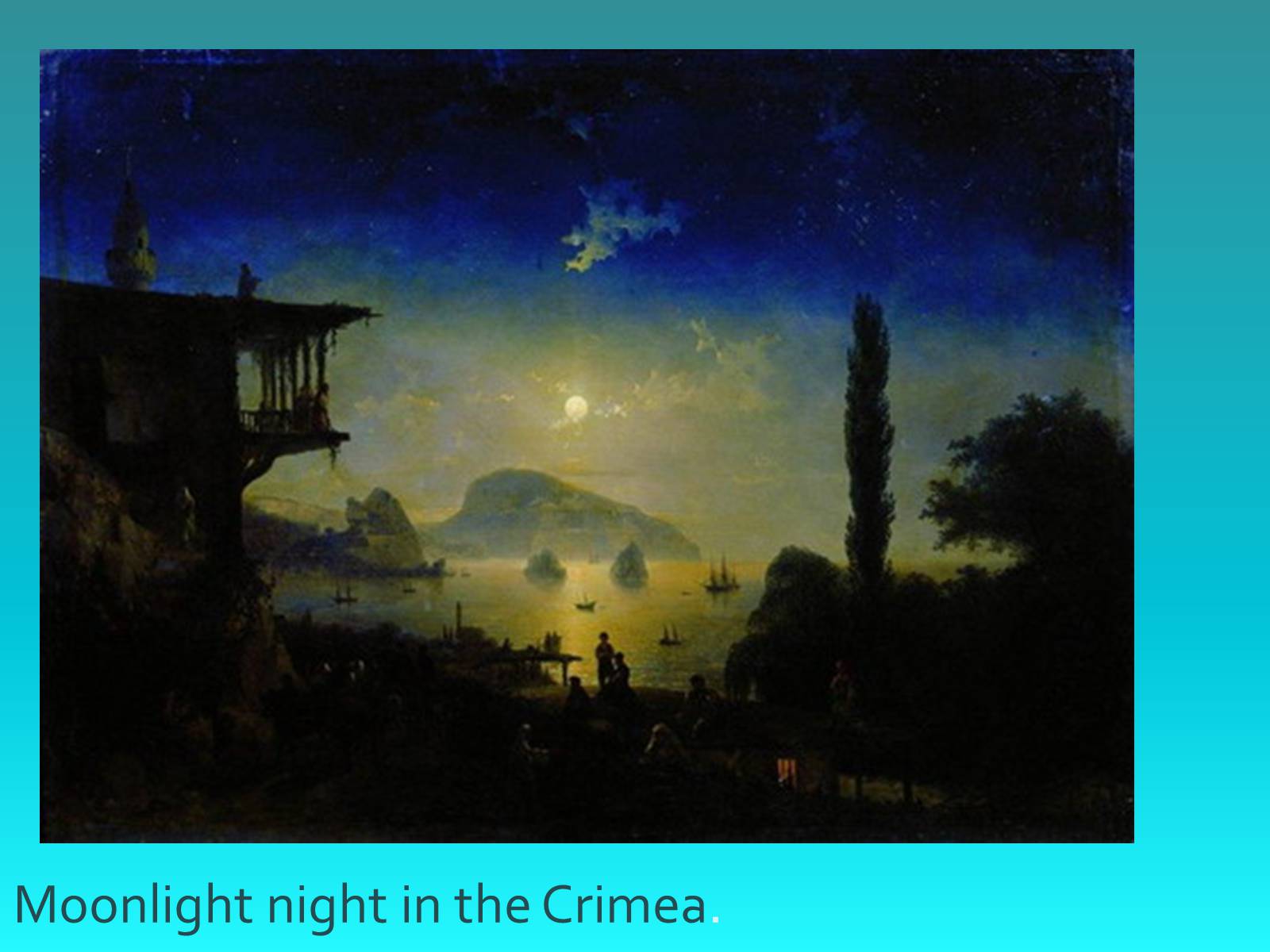
Moonlight night in the Crimea.
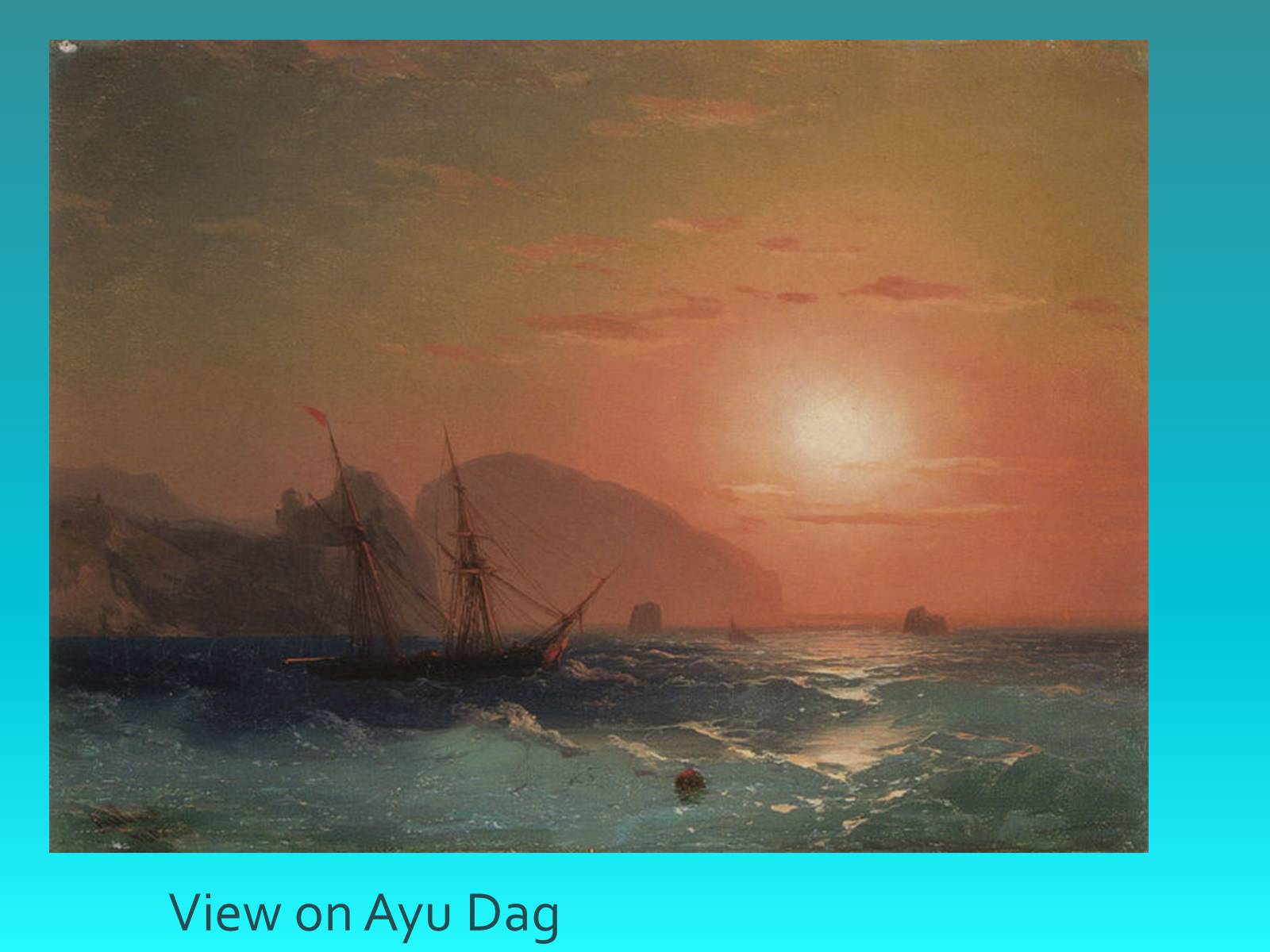
View on Ayu Dag
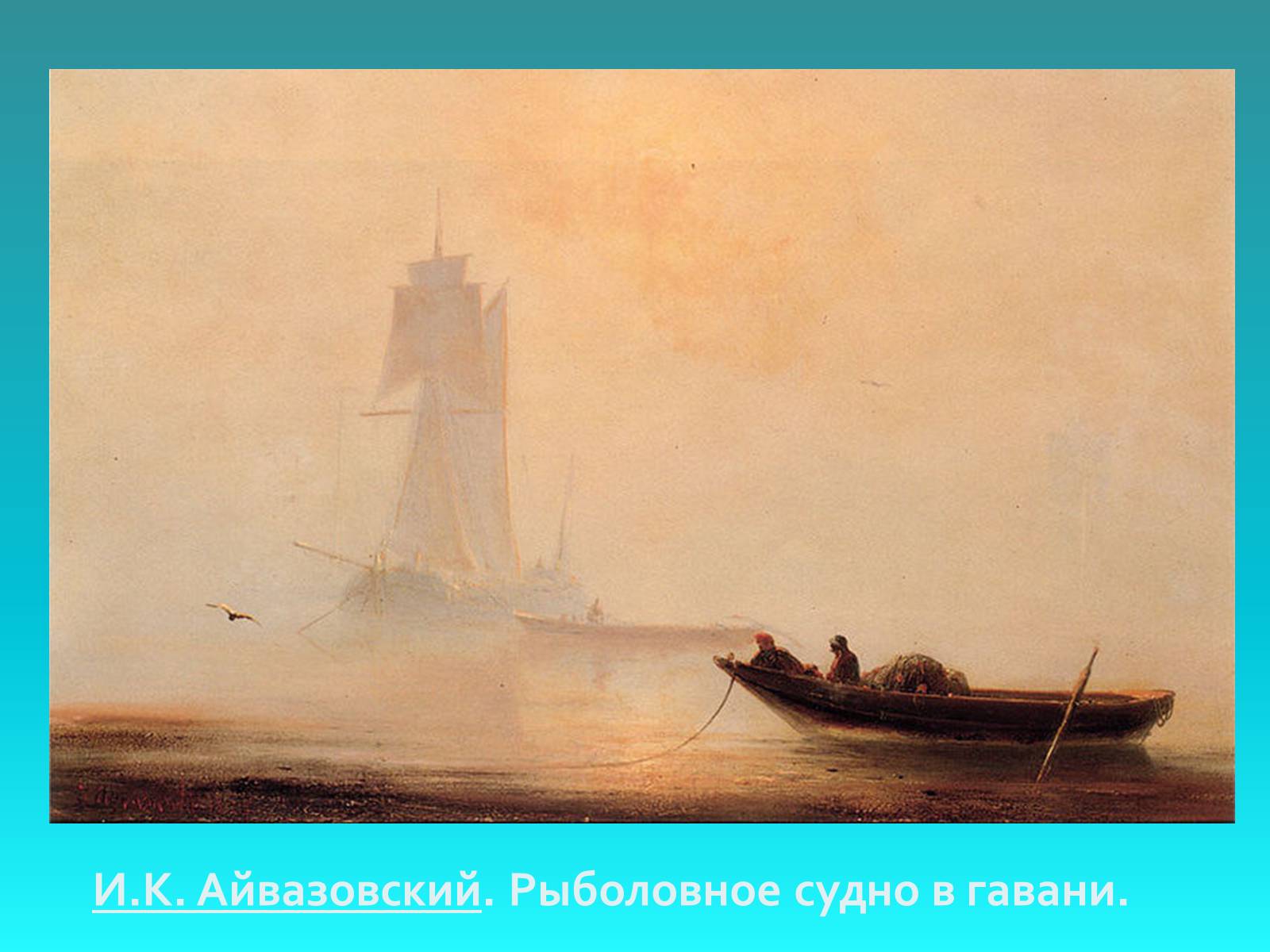
И.К. Айвазовский. Рыболовное судно в гавани.
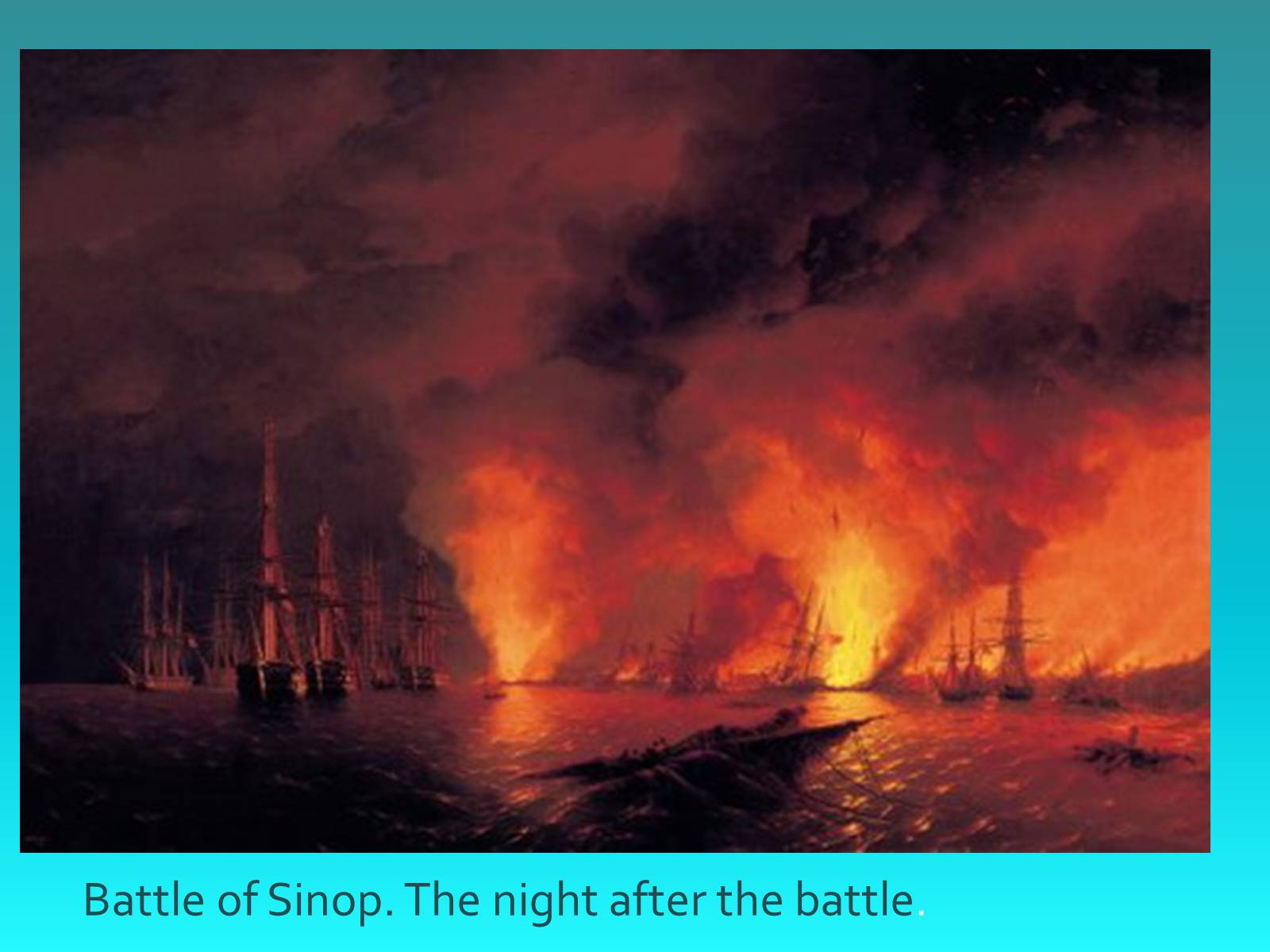
Battle of Sinop. The night after the battle.
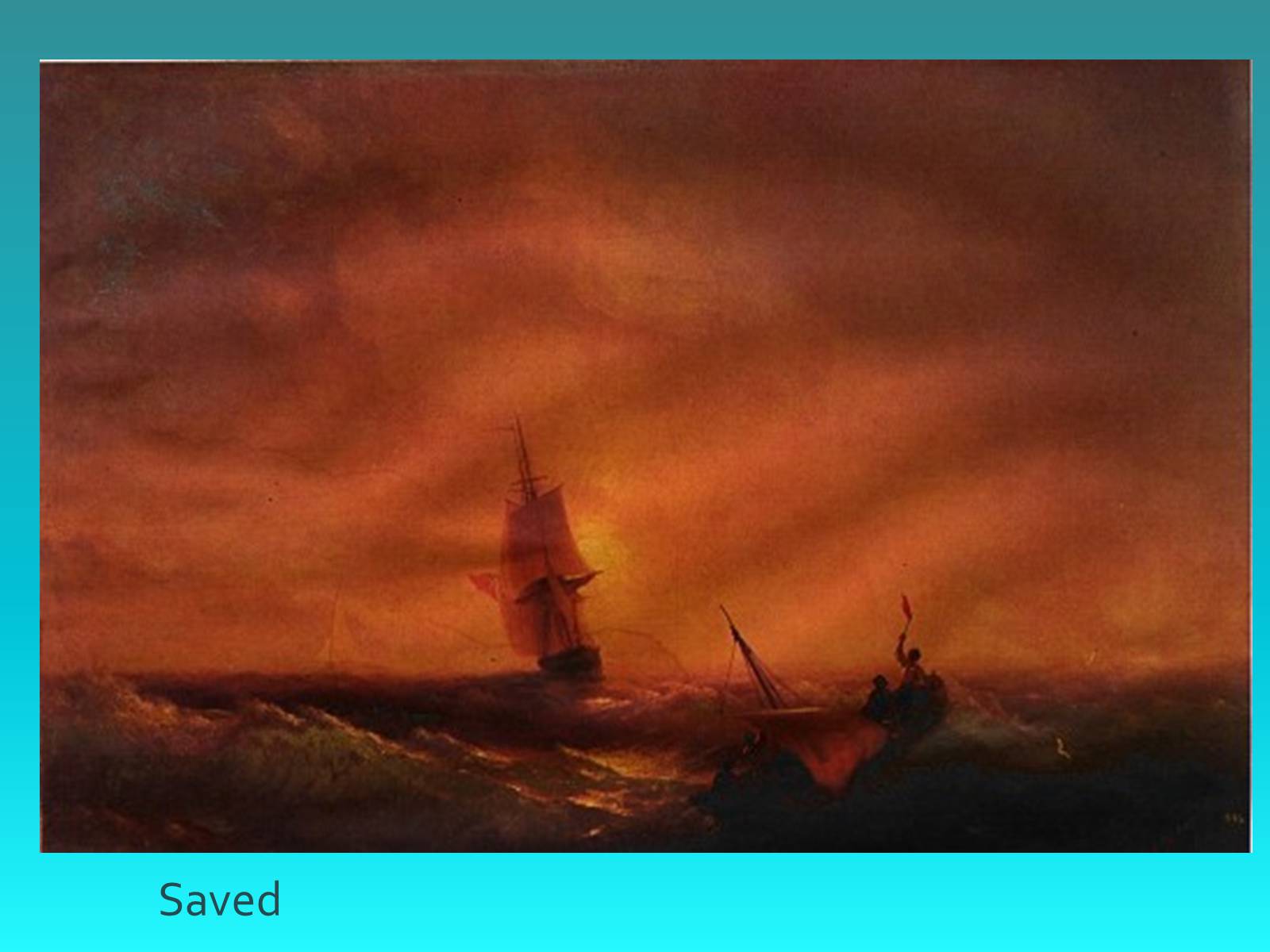
Saved
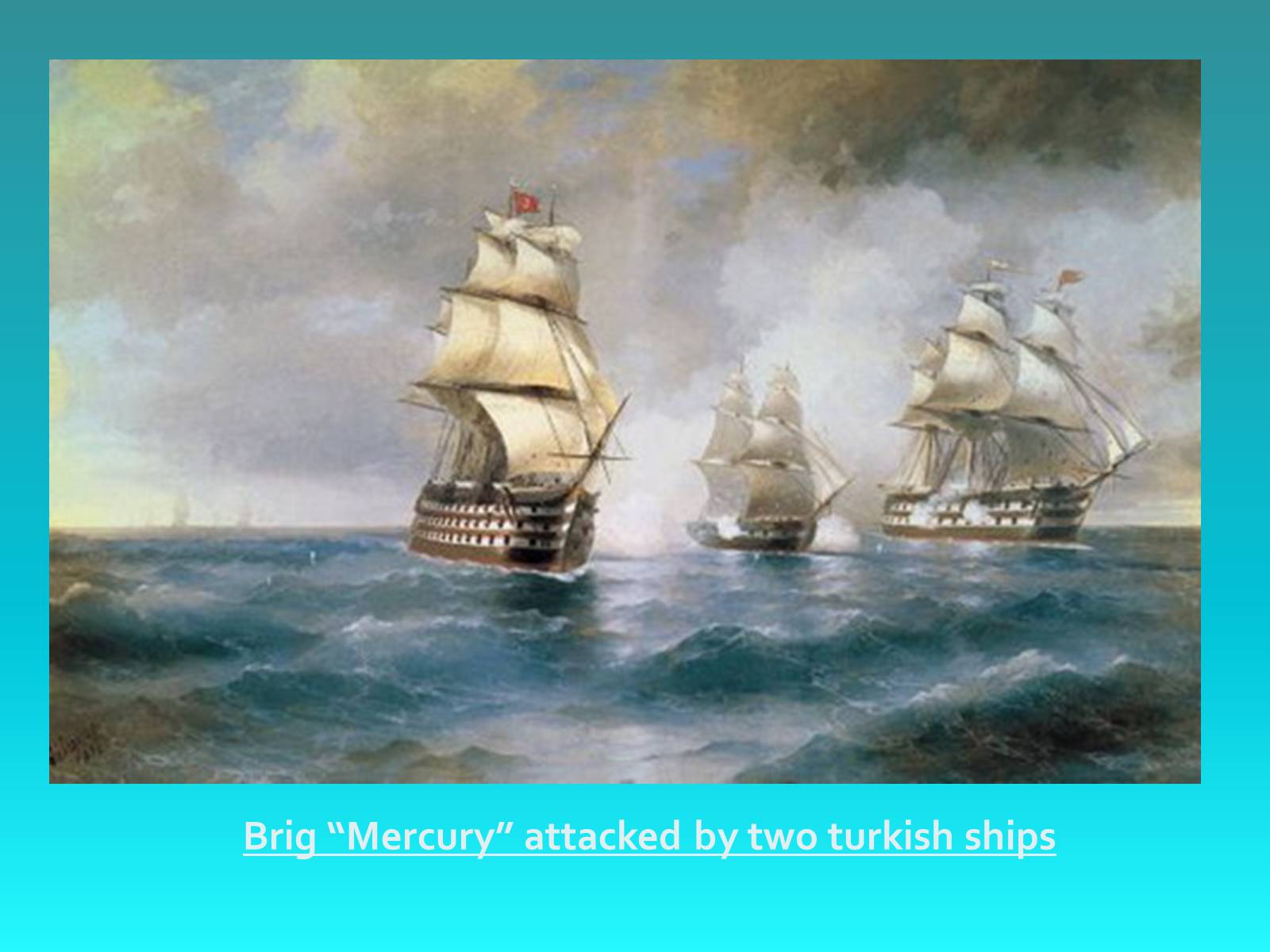
Brig “Mercury” attacked by two turkish ships
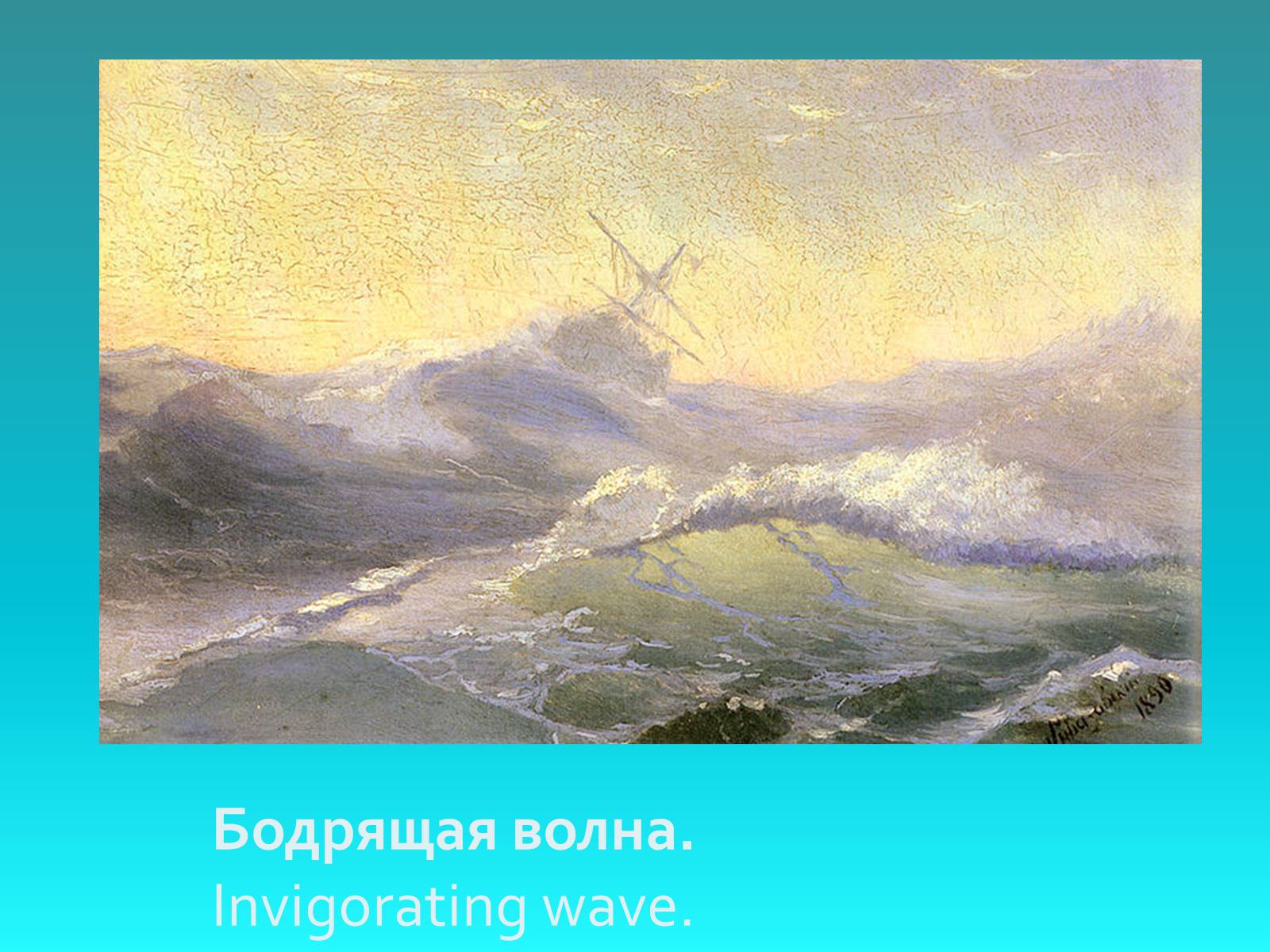
Бодрящая волна.
Invigorating wave.
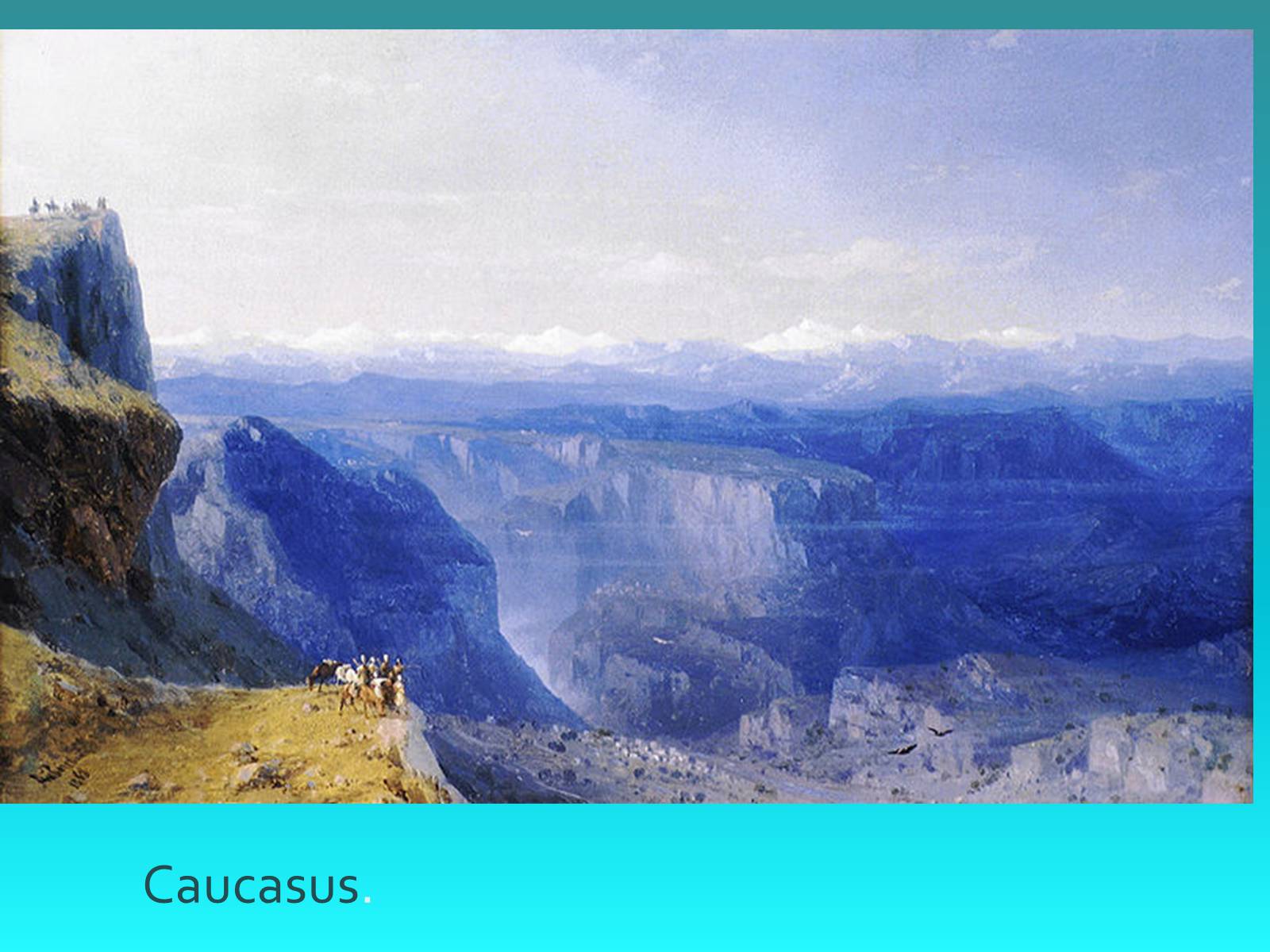
Caucasus.
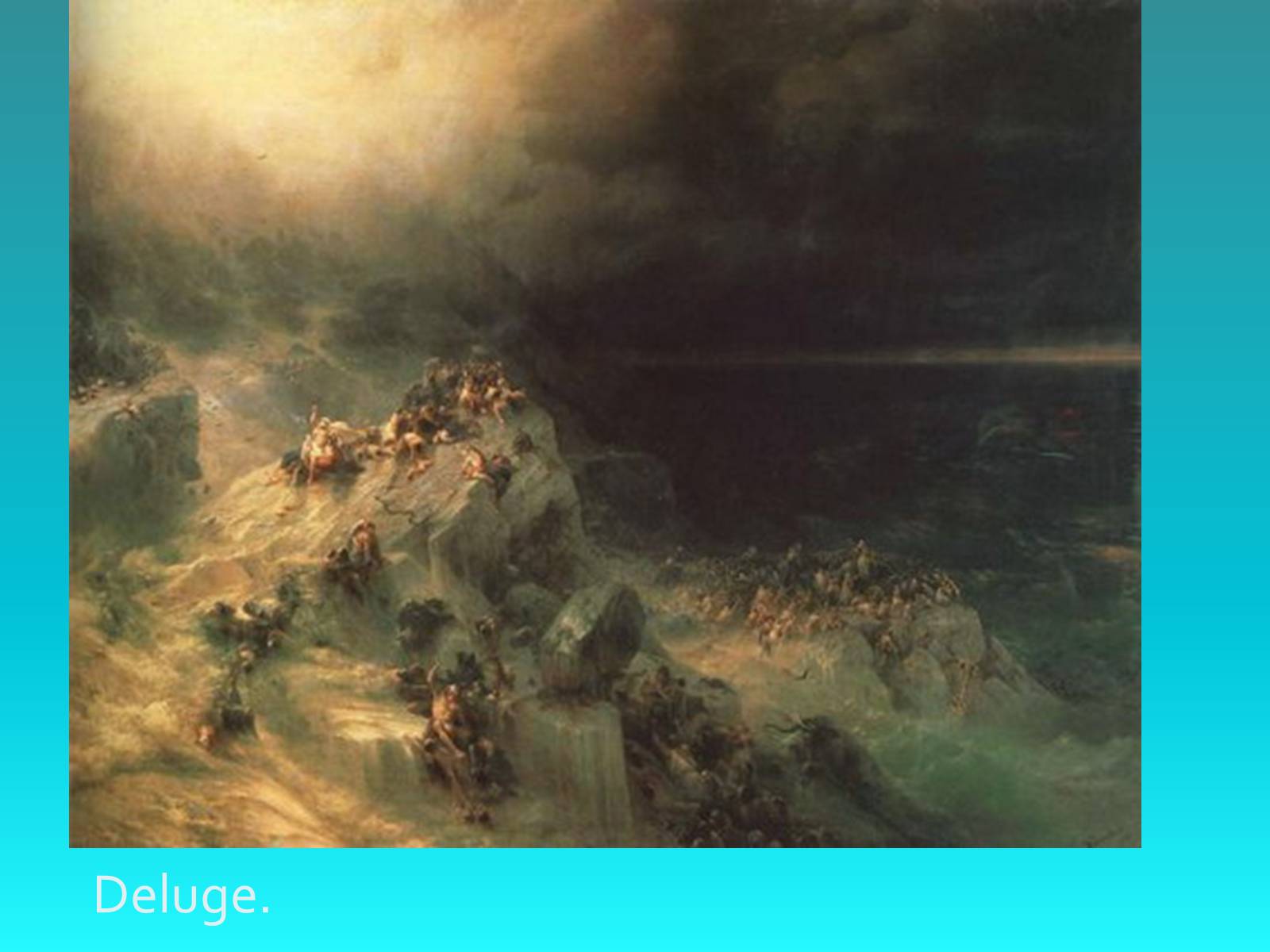
Deluge.
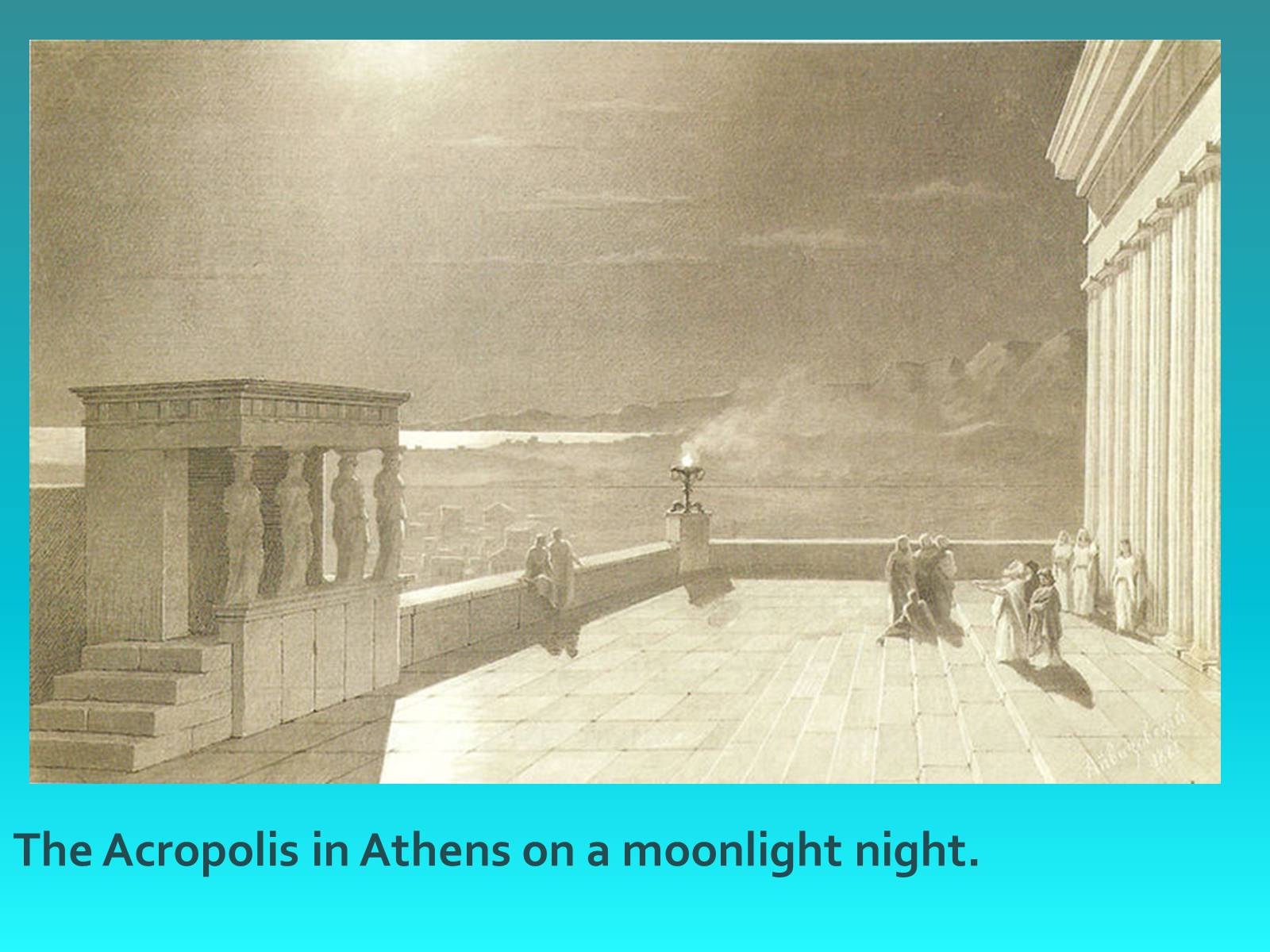
The Acropolis in Athens on a moonlight night.
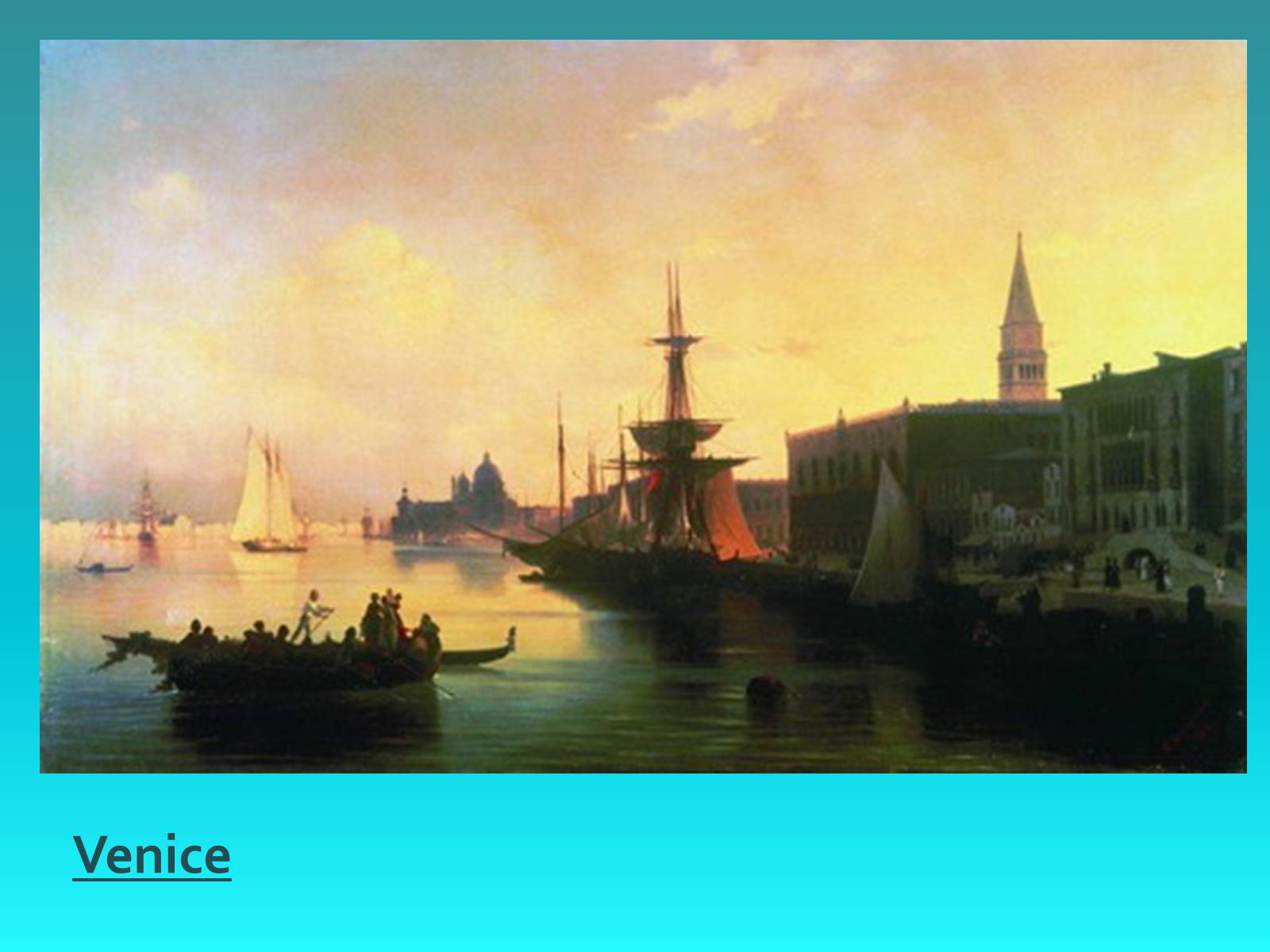
Venice
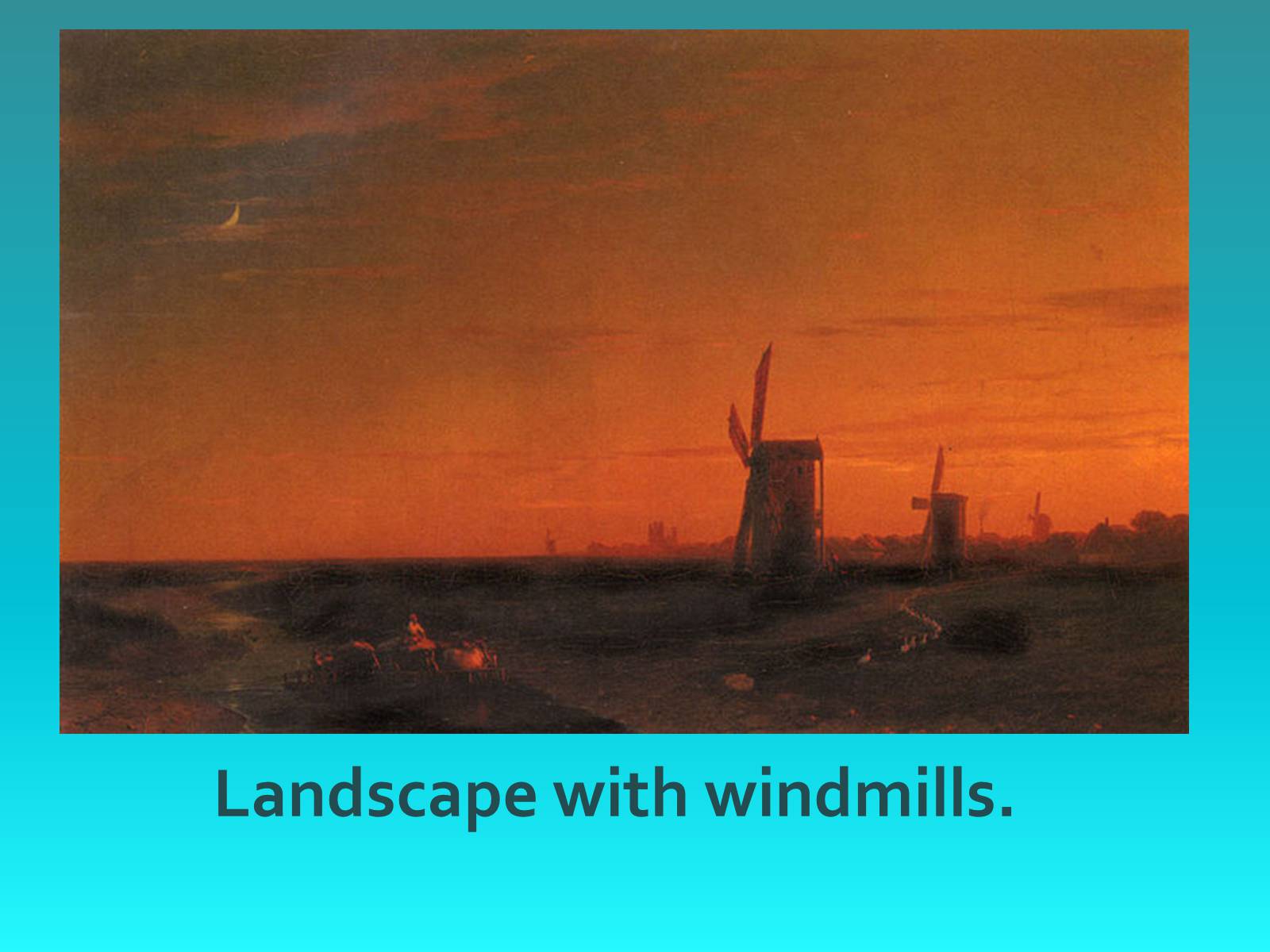
Landscape with windmills.
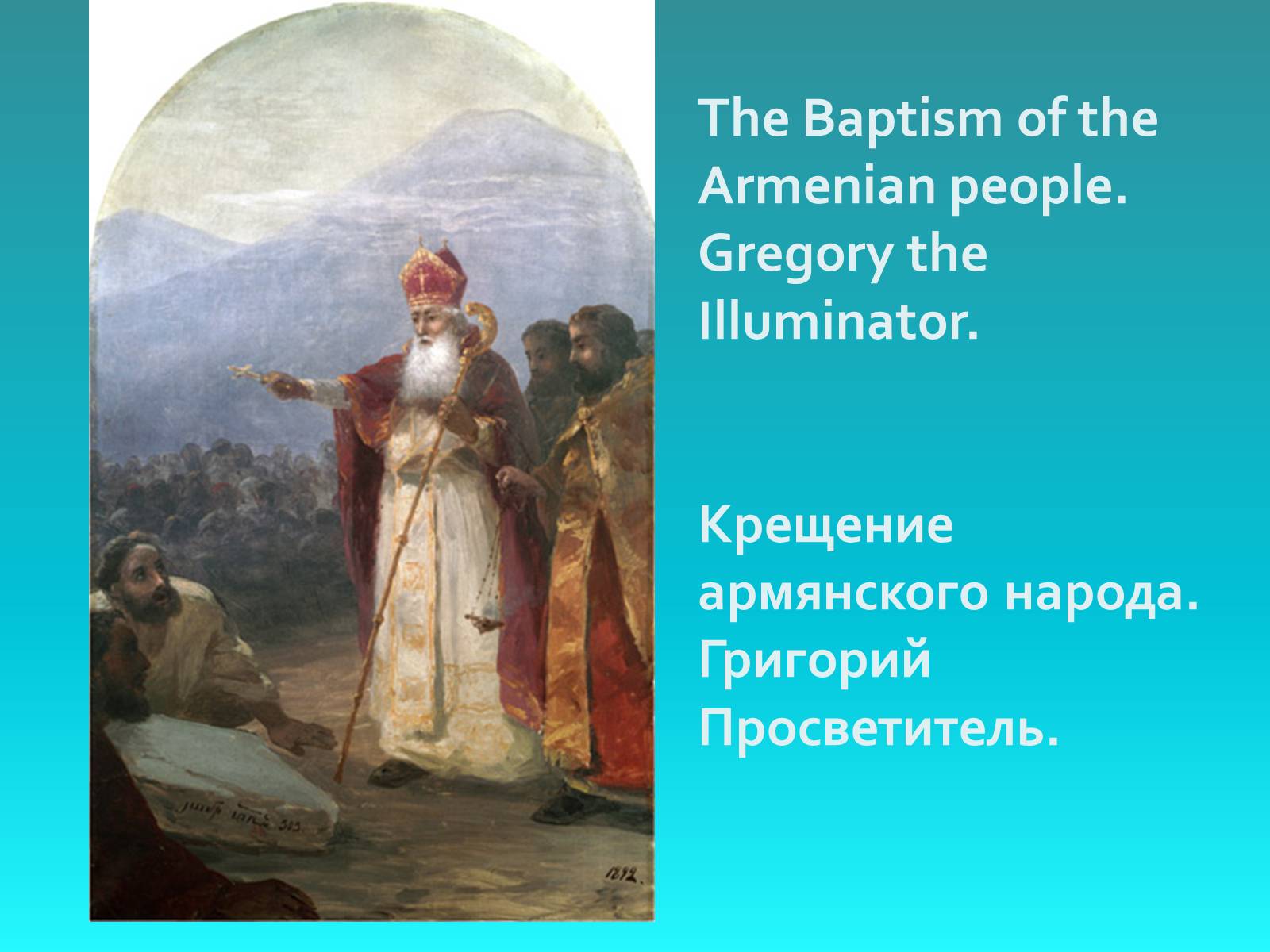
The Baptism of the Armenian people. Gregory the Illuminator.
Крещение армянского народа. Григорий Просветитель.
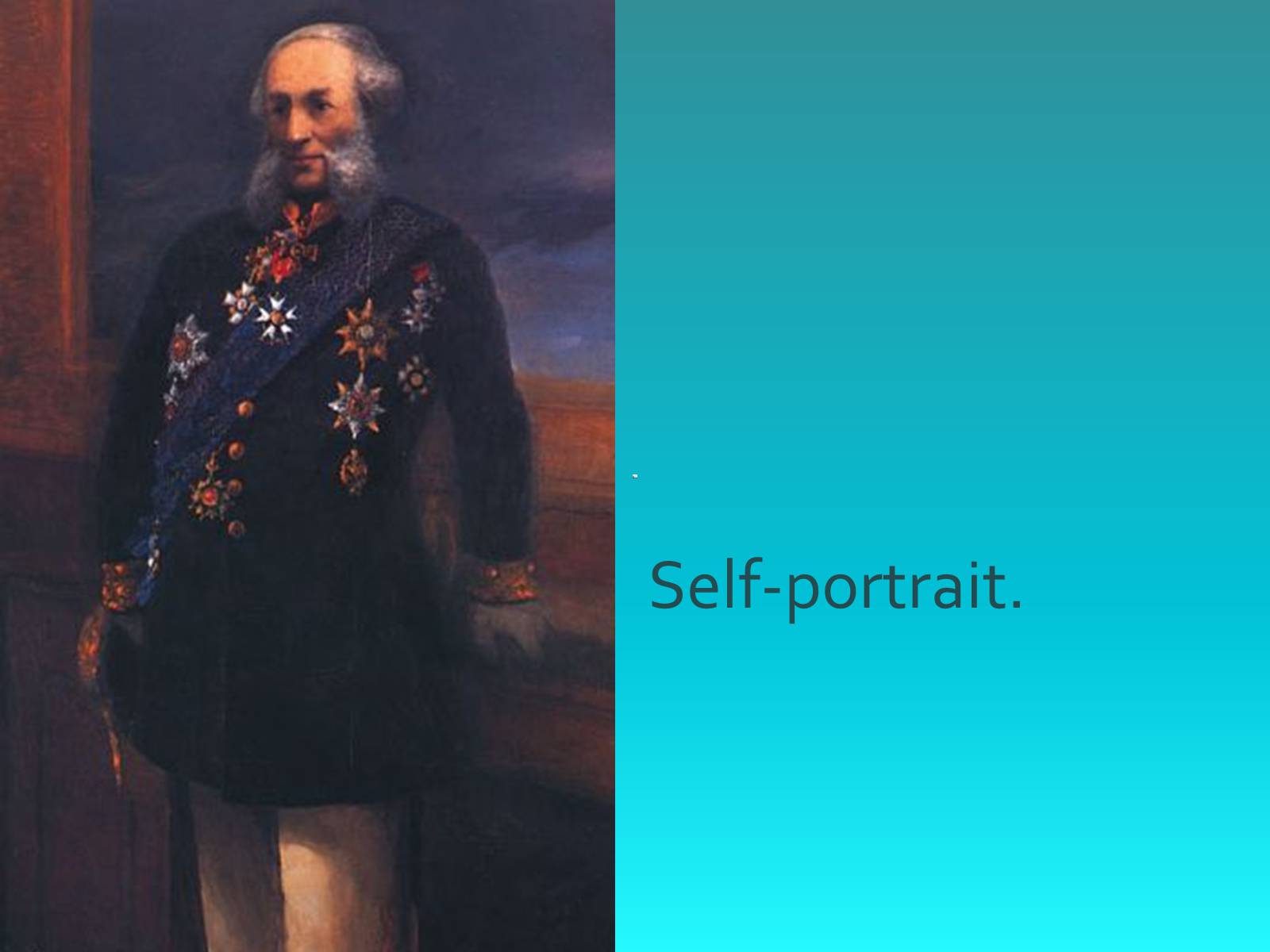
Self-portrait.
